2019 Conference Speakers
-
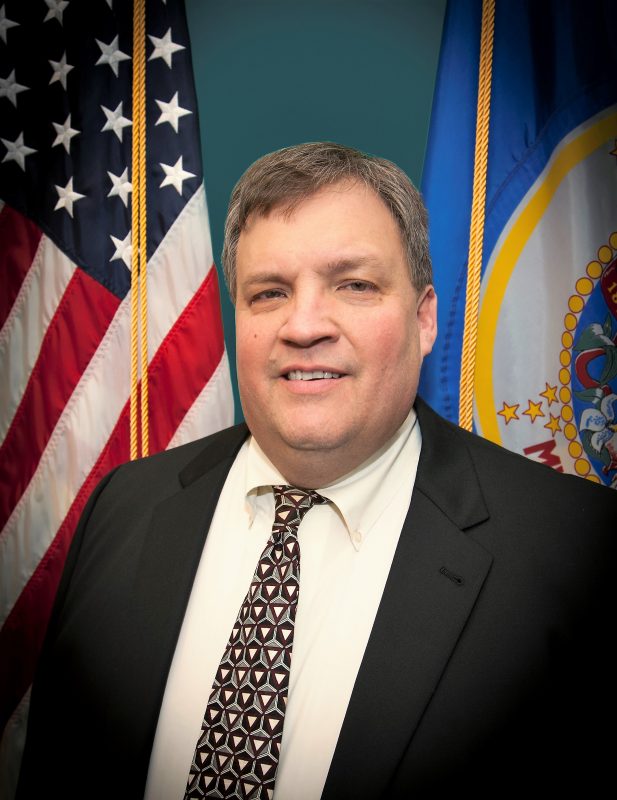 Thom Petersen, former GLBW steering committee member was appointed Commissioner of the Minnesota Department of Agriculture by Governor Tim Walz in January 2019.
Thom Petersen, former GLBW steering committee member was appointed Commissioner of the Minnesota Department of Agriculture by Governor Tim Walz in January 2019.Commissioner Petersen is a long-time resident of Royalton Township near Pine City where he lives on a horse farm. Before being appointed Commissioner, Petersen served as the Director of Government Relations for Minnesota Farmers Union (MFU) since 2002, working on behalf of MFU’s farmer-members in both Washington, D.C. and St. Paul.
Prior to his work at the Minnesota Farmers Union, Commissioner Petersen spent most of his life working for his family and his own horse and farm business. He has a wide range of experience in state and federal farm policy, and travels to almost every county in Minnesota each year to fully understand how these policies affect farmers’ daily lives. He has served on many boards and committees, including the University of Minnesota Extension Citizens Advisory Committee, Farmers Legal Action Group, Citizens Utility Board, Minnesota Ag in the Classroom, Minnesota State Organic Task Force, Minnesota Rural Broadband Coalition, and the Minnesota Fair Plan.
Commissioner Petersen received his Associate’s degree from Normandale Community College and studied at both the University of Minnesota and University of Georgia. The Commissioner and his wife Alana live in Pine City with their two sons. The Petersens show horses around the state and have competed at the Minnesota State Fair for over 25 years.
-
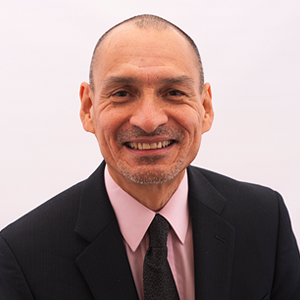 Ricardo J. Salvador is Director and Senior Scientist of the Food & Environment Program at the Union of Concerned Scientists, in Washington, D.C. He is a member of the International Panel of Experts on Sustainability-Food, and advises a range of organizations that are advancing food system innovation (including: the Science to Solutions Expert Advisory Group of the World Business Council for Sustainable Development; the Food, Agriculture, Biodiversity, Land Use and Energy Initiative-Mexico, of the United Nations Sustainable Development Solutions Network; the National Sustainable Agriculture Coalition, FoodCorps, the Center for Good Food Purchasing, Food System 6, The Land Institute, and the Fair Food Program of the Coalition of Immokalee Workers.) Prior positions include Program Officer for Food Health and Wellbeing at the W.K. Kellogg Foundation, and Associate Professor of Agronomy at Iowa State University. A native of Mexico, Ricardo’s academic background includes undergraduate studies in agriculture at New Mexico State University, and M.S. and Ph.D. Degrees in Crop Production and Physiology from Iowa State University.
Ricardo J. Salvador is Director and Senior Scientist of the Food & Environment Program at the Union of Concerned Scientists, in Washington, D.C. He is a member of the International Panel of Experts on Sustainability-Food, and advises a range of organizations that are advancing food system innovation (including: the Science to Solutions Expert Advisory Group of the World Business Council for Sustainable Development; the Food, Agriculture, Biodiversity, Land Use and Energy Initiative-Mexico, of the United Nations Sustainable Development Solutions Network; the National Sustainable Agriculture Coalition, FoodCorps, the Center for Good Food Purchasing, Food System 6, The Land Institute, and the Fair Food Program of the Coalition of Immokalee Workers.) Prior positions include Program Officer for Food Health and Wellbeing at the W.K. Kellogg Foundation, and Associate Professor of Agronomy at Iowa State University. A native of Mexico, Ricardo’s academic background includes undergraduate studies in agriculture at New Mexico State University, and M.S. and Ph.D. Degrees in Crop Production and Physiology from Iowa State University. -
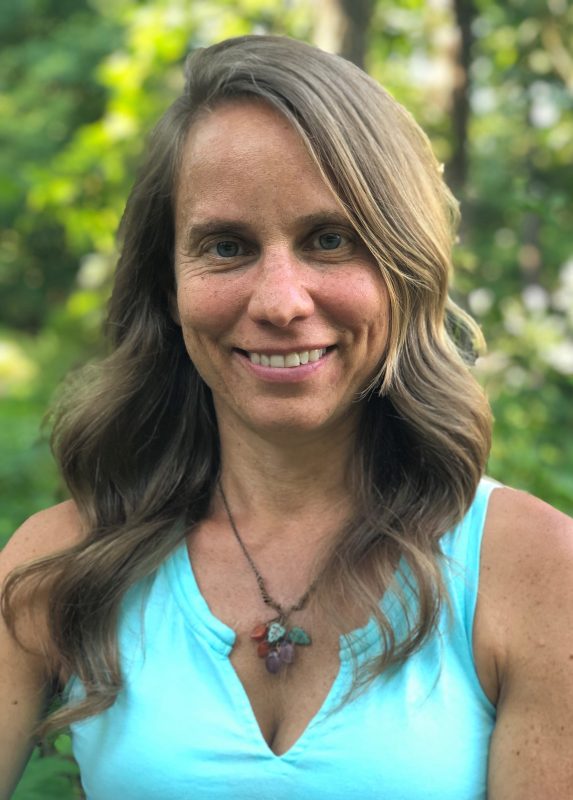 Dr. Sarah Lovell serves as H.E. Garrett Endowed Chair Professor and Director for the Center for Agroforestry at University of Missouri. This appointment follows ten years she served on the faculty at the University of Illinois and a previous three years on the faculty at University of Vermont. Her research philosophy has evolved from an interdisciplinary background, including an MS and PhD in Agronomy followed by a Master in Landscape Architecture (MLA) from University of Illinois. With a focus on the analysis and design of multifunctional landscapes, Dr. Lovell’s research program has emphasized whole-farm planning, agroforestry, and urban agriculture. The agroforestry work includes the integration of productive woody trees and shrubs into agricultural landscapes, to improve the environmental health and cultural significance of the agroecosystem. The work in urban agriculture assesses the benefits of food production systems including plant biodiversity, pollination services, and cultural functions, as well as the impact on food security of the participating households. From that body of work, she has published 55 peer reviewed journal articles, many in multidisciplinary journals. She has been awarded over $5.6 million in competitive grants, including the most grant from the USDA National Institute of Food and Agriculture (NIFA) to work on “Multifunctional Woody Polyculture for Sustainable Food Production”.
Dr. Sarah Lovell serves as H.E. Garrett Endowed Chair Professor and Director for the Center for Agroforestry at University of Missouri. This appointment follows ten years she served on the faculty at the University of Illinois and a previous three years on the faculty at University of Vermont. Her research philosophy has evolved from an interdisciplinary background, including an MS and PhD in Agronomy followed by a Master in Landscape Architecture (MLA) from University of Illinois. With a focus on the analysis and design of multifunctional landscapes, Dr. Lovell’s research program has emphasized whole-farm planning, agroforestry, and urban agriculture. The agroforestry work includes the integration of productive woody trees and shrubs into agricultural landscapes, to improve the environmental health and cultural significance of the agroecosystem. The work in urban agriculture assesses the benefits of food production systems including plant biodiversity, pollination services, and cultural functions, as well as the impact on food security of the participating households. From that body of work, she has published 55 peer reviewed journal articles, many in multidisciplinary journals. She has been awarded over $5.6 million in competitive grants, including the most grant from the USDA National Institute of Food and Agriculture (NIFA) to work on “Multifunctional Woody Polyculture for Sustainable Food Production”. -
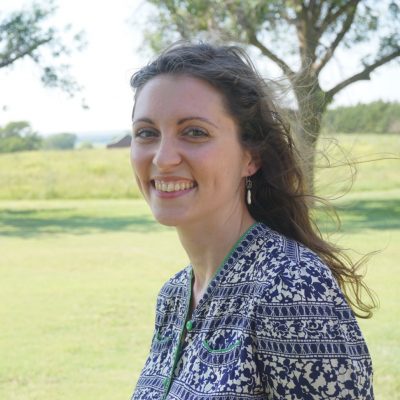 Aubrey Streit Krug is Director of Ecosphere Studies at The Land Institute in Salina, KS. She is a writer and teacher in the environmental humanities who studies stories of relationships between humans and plants. Aubrey holds a BA in English and Communications from Bethany College in Lindsborg, Kansas, and MA and PhD in English and Great Plains Studies from the University of Nebraska-Lincoln. She is also a student of the Omaha language. Aubrey grew up in the small town of Tipton in north-central Kansas, where her parents farm wheat and raise cattle, and considers limestone soils with rocky prairie hillsides her home ground. She is drawn to “how The Land Institute is based on an educational premise: people can, and do, learn from wild plants and ecosystems. That, and how unabashedly this organization plays the long game.”
Aubrey Streit Krug is Director of Ecosphere Studies at The Land Institute in Salina, KS. She is a writer and teacher in the environmental humanities who studies stories of relationships between humans and plants. Aubrey holds a BA in English and Communications from Bethany College in Lindsborg, Kansas, and MA and PhD in English and Great Plains Studies from the University of Nebraska-Lincoln. She is also a student of the Omaha language. Aubrey grew up in the small town of Tipton in north-central Kansas, where her parents farm wheat and raise cattle, and considers limestone soils with rocky prairie hillsides her home ground. She is drawn to “how The Land Institute is based on an educational premise: people can, and do, learn from wild plants and ecosystems. That, and how unabashedly this organization plays the long game.” -
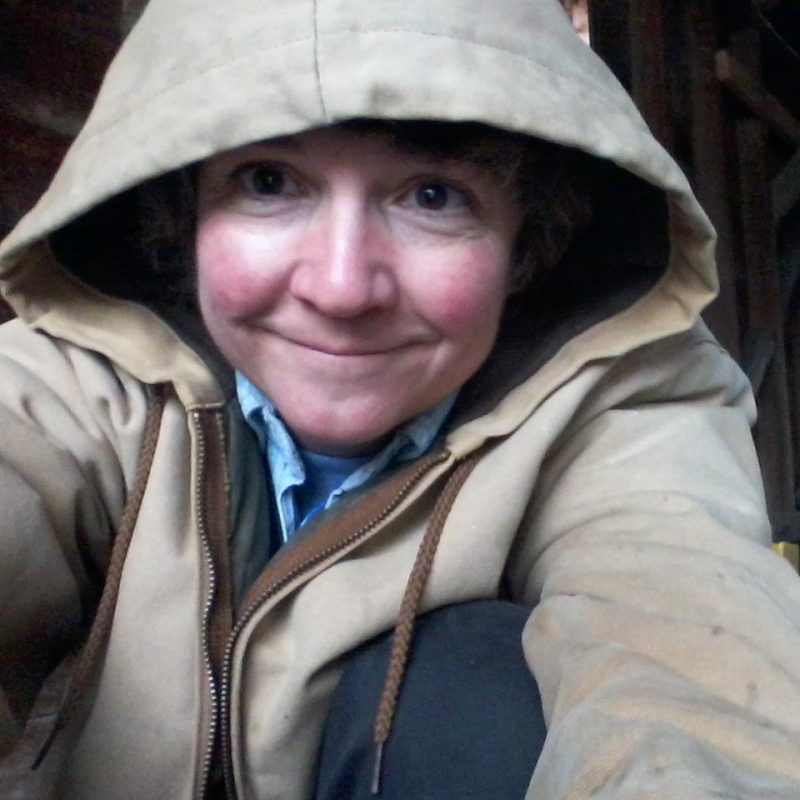 Erin Meier is Director of Green Lands Blue Waters, a collaborative initiative focused on shifting the agricultural landscape of the Upper Mississippi River Basin to more acres of continuous living cover to improve water quality, soil health, and agricultural and community resilience. Previously, Erin served for 14 years as Executive Director of the University of Minnesota Southeast Regional Sustainable Development Partnership. She has over 20 years of experience and training in sustainable agriculture, local food systems, food access, natural resource conservation, clean energy, community engagement and development, and facilitating cross-sector work groups and networks. Erin holds an MS in Sustainable Agriculture from Iowa State University and BS in Geography from the University of Illinois.
Erin Meier is Director of Green Lands Blue Waters, a collaborative initiative focused on shifting the agricultural landscape of the Upper Mississippi River Basin to more acres of continuous living cover to improve water quality, soil health, and agricultural and community resilience. Previously, Erin served for 14 years as Executive Director of the University of Minnesota Southeast Regional Sustainable Development Partnership. She has over 20 years of experience and training in sustainable agriculture, local food systems, food access, natural resource conservation, clean energy, community engagement and development, and facilitating cross-sector work groups and networks. Erin holds an MS in Sustainable Agriculture from Iowa State University and BS in Geography from the University of Illinois. -
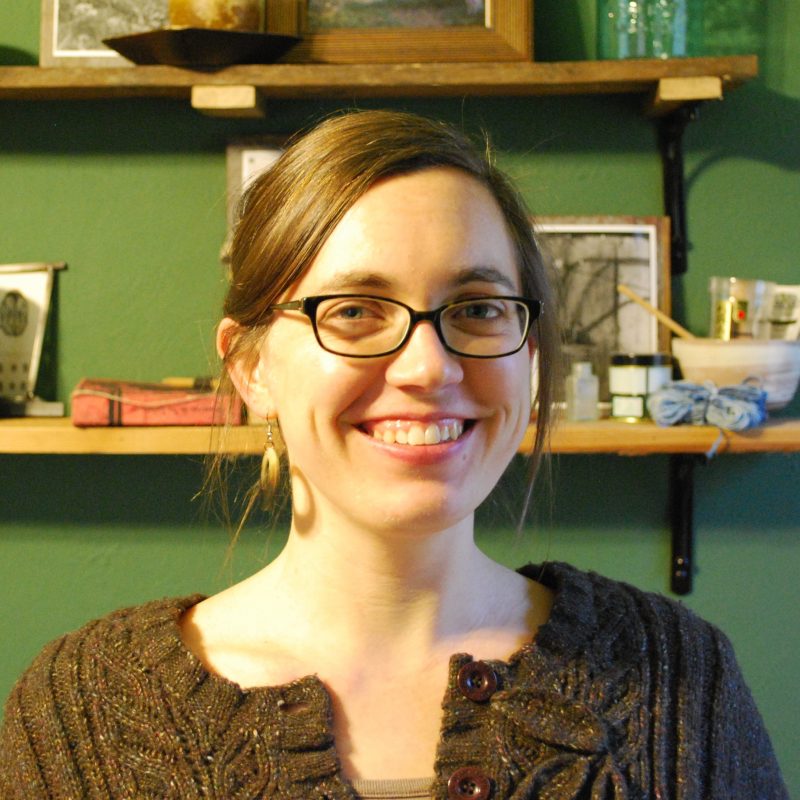 Aaron Reser is the Associate Director for Green Lands Blue Waters (GLBW). Based at the Minnesota Institute for Sustainable Agriculture, GLBW works with a wide network of partners across the Upper Midwest to increase continuous living cover on the agricultural landscape. In the past, Aaron led GLBW’s Watershed Initiative work and was the lead staff on early supply chain development work with Kernza™ perennial grain. Her expertise is in building and strengthening collaborative networks, linking key elements and individuals along the path from farm to market and illuminating all of the systems-support pieces that underlay that path. She brings 15 years experience in a whole-systems approach to building regional food systems. Aaron has an MPA from the UMN Humphrey School of Public Affairs.
Aaron Reser is the Associate Director for Green Lands Blue Waters (GLBW). Based at the Minnesota Institute for Sustainable Agriculture, GLBW works with a wide network of partners across the Upper Midwest to increase continuous living cover on the agricultural landscape. In the past, Aaron led GLBW’s Watershed Initiative work and was the lead staff on early supply chain development work with Kernza™ perennial grain. Her expertise is in building and strengthening collaborative networks, linking key elements and individuals along the path from farm to market and illuminating all of the systems-support pieces that underlay that path. She brings 15 years experience in a whole-systems approach to building regional food systems. Aaron has an MPA from the UMN Humphrey School of Public Affairs. -
 Ryan Anderson is the Supply Development Lead at Nori. Joining in January 2019 and based in Chicago, Ryan is helping to launch Nori’s dedicated carbon removal marketplace starting with US croplands. He has over 13 years of experience in program research, design, strategy, and implementation around environmental markets. Among his previous roles at the Delta Institute, he managed a voluntary carbon sequestration program that returned over $2 million to farmers and forest landowners in 18 states. Ryan holds degrees in finance and ecological economics, and is a former Steering Committee member of Green Lands Blue Waters.
Ryan Anderson is the Supply Development Lead at Nori. Joining in January 2019 and based in Chicago, Ryan is helping to launch Nori’s dedicated carbon removal marketplace starting with US croplands. He has over 13 years of experience in program research, design, strategy, and implementation around environmental markets. Among his previous roles at the Delta Institute, he managed a voluntary carbon sequestration program that returned over $2 million to farmers and forest landowners in 18 states. Ryan holds degrees in finance and ecological economics, and is a former Steering Committee member of Green Lands Blue Waters. -
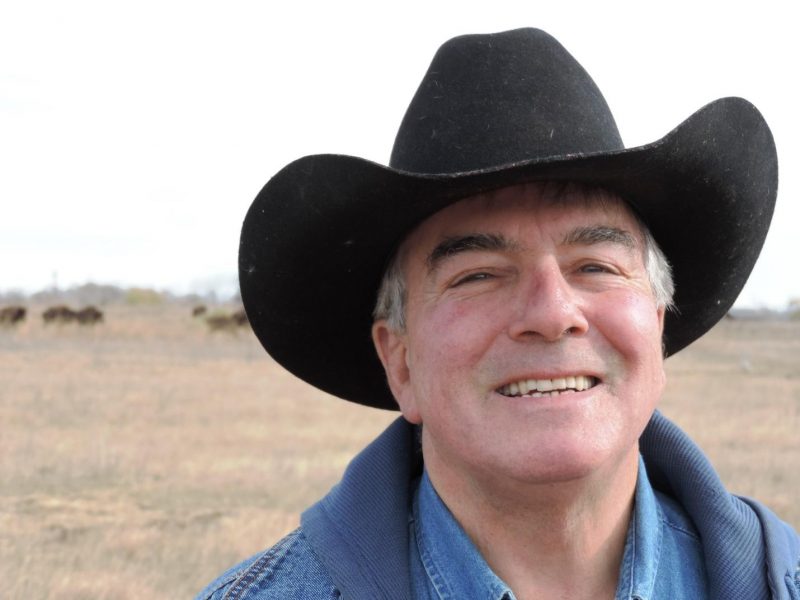 Tom Barthel, Snake River Farm, Becker, MN, is a lifelong livestock farmer. He was raised on a dairy farm and purchased his central Minnesota farm fifty years ago. He has extensive experience raising cattle, hogs, sheep, horses and poultry. In the 1970s and 1980s, Tom grew corn on 700 acres of owned and rented land. Like most farmers, Tom worked off the farm to sustain his family and his farm through hard times, working as an electrical engineer who later became CEO of a medical device company. In 2000, he and a financial partner founded their own international medical device company.
Tom Barthel, Snake River Farm, Becker, MN, is a lifelong livestock farmer. He was raised on a dairy farm and purchased his central Minnesota farm fifty years ago. He has extensive experience raising cattle, hogs, sheep, horses and poultry. In the 1970s and 1980s, Tom grew corn on 700 acres of owned and rented land. Like most farmers, Tom worked off the farm to sustain his family and his farm through hard times, working as an electrical engineer who later became CEO of a medical device company. In 2000, he and a financial partner founded their own international medical device company. Tom has been farming full time for ten years. He and his wife Gail raise bison, beef, hogs, sheep, turkey, geese, ducks and rabbits for sale directly to consuming families. The farm is grass based, natural, humane, regenerative, holistic, organic and profitable. Tom is a long-time member of the Sustainable Farming Association and is currently the Secretary/Treasurer of the National Bison Association.
-
 Rich Biske is the Freshwater Conservation Program Director for The Nature Conservancy in Minnesota, North Dakota and South Dakota. As Freshwater Program Director, Mr. Biske leads the Conservancy’s freshwater policy development, conservation strategy, watershed protection and builds capacity of partner organizations. Biske collaborates with public and private sector leaders to advance freshwater protection for people and nature. He leads a team of talented scientists, regional program managers and project managers that implement conservation action throughout our 3 state chapter.
Rich Biske is the Freshwater Conservation Program Director for The Nature Conservancy in Minnesota, North Dakota and South Dakota. As Freshwater Program Director, Mr. Biske leads the Conservancy’s freshwater policy development, conservation strategy, watershed protection and builds capacity of partner organizations. Biske collaborates with public and private sector leaders to advance freshwater protection for people and nature. He leads a team of talented scientists, regional program managers and project managers that implement conservation action throughout our 3 state chapter.Rich has been a leader in the Conservancy’s multi-state Mississippi River Whole System and North America Agriculture programs for over a decade. Prior to his current position he was the Southeast Minnesota Conservation Coordinator for The Nature Conservancy from 2005 to 2014. Rich led regional partnerships and initiated several innovative soil and water conservation practices along with habitat protection and restoration programs that continue today. Prior to The Conservancy, Biske was a Natural Resources Planner with the Anoka Conservation District, conducting site based habitat protection, restoration and open space planning and protection.
Rich is a graduate of the University of Minnesota, College of Natural Resources in St. Paul with a BS in Environmental Science, Planning and Policy.
-
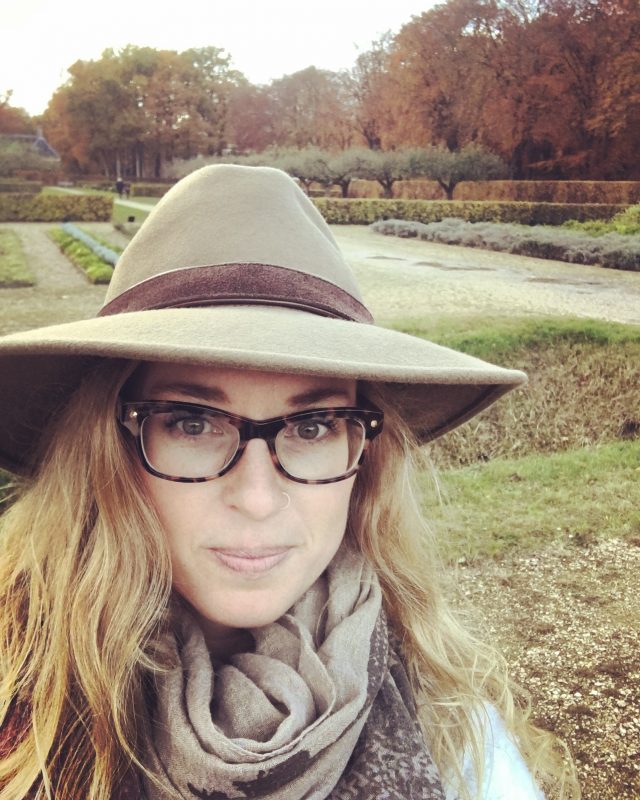 Celie Borndal is the State Forester for the Natural Resources Conservation Service (NRCS) in Minnesota who completed her bachelor’s degree at the University of Minnesota in Forestry. She worked for a Conservation District in the upper peninsula of Michigan, working with private landowners on their quest of forest management, then worked for NRCS in Wisconsin in 2014 helping landowners get forest management plans written, planning rotational grazing of a variety of livestock and creating wildlife habitat. She began working at MN NRCS in April, 2019, supporting field offices to implement conservation programs related to forestry and forestland.
Celie Borndal is the State Forester for the Natural Resources Conservation Service (NRCS) in Minnesota who completed her bachelor’s degree at the University of Minnesota in Forestry. She worked for a Conservation District in the upper peninsula of Michigan, working with private landowners on their quest of forest management, then worked for NRCS in Wisconsin in 2014 helping landowners get forest management plans written, planning rotational grazing of a variety of livestock and creating wildlife habitat. She began working at MN NRCS in April, 2019, supporting field offices to implement conservation programs related to forestry and forestland. NRCS works with private landowners to complete all types of conservation practices through technical and financial assistance, on everything from installing fence for a rotational grazing cattle system to planting trees on forestland to increase wildlife habitat or increase diversity of species. NRCS offers several programs for landowners to get the financial assistance, and also offers technical assistance.
-
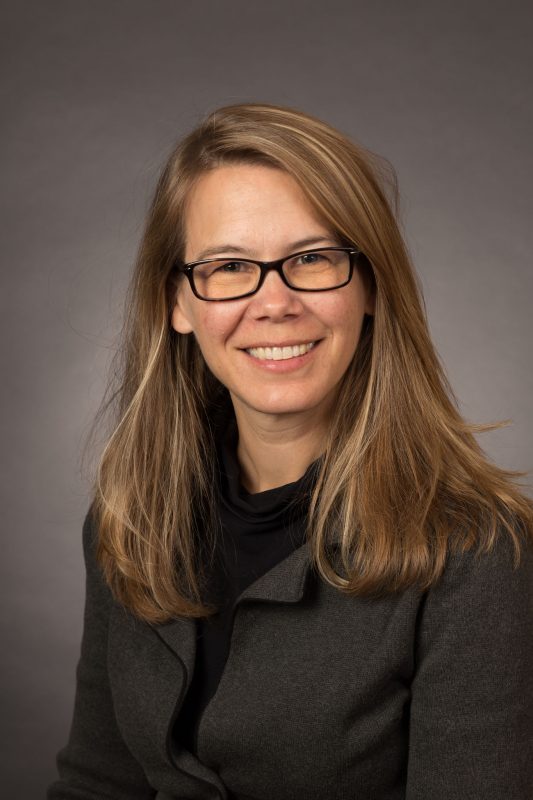 Constance Carlson is employed by UMN Extension as the Co-Director for Statewide Sustainable Agriculture and Food Systems for the Regional Sustainable Development Partnerships. Her work centers around researching and developing supply chains and market opportunities for UMN crops and is currently focused on the crops within the UMN Forever Green Initiative (FGI). She is working closely with UMN researchers who are breeding and testing new crops and fostering connections and market opportunities for growers, processors and businesses seeking to incorporate FGI innovations. Her work is funded by the Walton Family Foundation. Carlson comes to the Forever Green Initiative with more than twenty years of professional experience in product development, media relations, strategic sales, marketing and communications. She currently serves as the President of the Sustainable Farming Association of Minnesota.
Constance Carlson is employed by UMN Extension as the Co-Director for Statewide Sustainable Agriculture and Food Systems for the Regional Sustainable Development Partnerships. Her work centers around researching and developing supply chains and market opportunities for UMN crops and is currently focused on the crops within the UMN Forever Green Initiative (FGI). She is working closely with UMN researchers who are breeding and testing new crops and fostering connections and market opportunities for growers, processors and businesses seeking to incorporate FGI innovations. Her work is funded by the Walton Family Foundation. Carlson comes to the Forever Green Initiative with more than twenty years of professional experience in product development, media relations, strategic sales, marketing and communications. She currently serves as the President of the Sustainable Farming Association of Minnesota. -
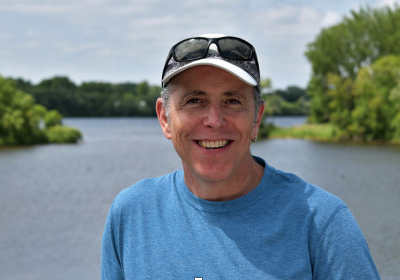 For more than 30 years Whitney Clark has worked to improve Minnesota’s environment as a staff member for several environmental organizations including Clean Water Action and Citizens for a Better Environment. During his 20-year tenure as executive director, he has led FMR’s growth from a start-up group with one full-time employee to one of Minnesota’s largest and most effective conservation organizations with a staff of 19. Whitney has extensive experience in environmental policy, lobbying, advocacy and education campaigns, partnership building around environmental issues and fundraising. He holds a Bachelor’s degree in Multidisciplinary Studies from the University of Minnesota.
For more than 30 years Whitney Clark has worked to improve Minnesota’s environment as a staff member for several environmental organizations including Clean Water Action and Citizens for a Better Environment. During his 20-year tenure as executive director, he has led FMR’s growth from a start-up group with one full-time employee to one of Minnesota’s largest and most effective conservation organizations with a staff of 19. Whitney has extensive experience in environmental policy, lobbying, advocacy and education campaigns, partnership building around environmental issues and fundraising. He holds a Bachelor’s degree in Multidisciplinary Studies from the University of Minnesota.Whitney oversees all aspects of FMR’s programs and operations and serves as the organization’s primary spokesperson. He works closely with the Board of Directors to guide organizational policy and set strategic goals and plays an active role in each of the organization’s programs. Whitney also works very closely with FMR’s donors to ensure a growing base of support for FMR’s work.
Whitney says he “strongly resonates” with E.B. White’s comment “I arise in the morning torn between a desire to improve the world and a desire to enjoy the world.” Whitney’s preferred ways to enjoy the world are spending time with his wife and two daughters paddling rivers and exploring wild places. He loves reading, traveling, live music and claims the craft beer revolution gives him “hope for humanity.”
-
Dr. Ashley Conway is an assistant research professor at the University of Missouri Center for Agroforestry focused on investigating intensive integrated tree-forage-livestock (silvopasture) systems in order to raise livestock more sustainably. Her primary goal is to develop a research program investigating the logistical, economic, environmental, and social dynamics of silvopasture systems in Missouri and the Midwest through the lens of efficient and responsible animal production. She seeks to better understand how to optimize animal performance and nutrition using silvopastoral production practices while maintaining or enhancing ecosystem services and tree performance. She has a Ph.D. in Animal Science, 2019, from the University of Nebraska-Lincoln, and she obtained an M.S. and B.S. in Animal Science at Washington State University. Following her B.S. degree, she worked from 2010-2012 as an agroforestry/agriculture extension volunteer in Zambia, Africa for the US Peace Corps.
-
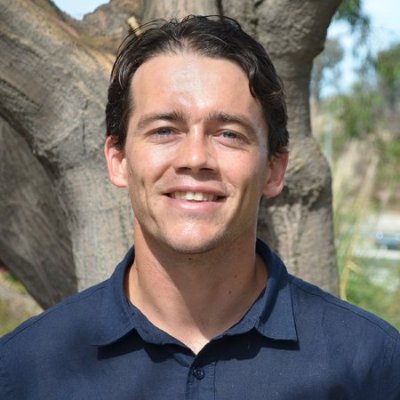 As Supply Chain Development Specialist for the UMN Forever Green Initiative, Colin Cureton supports the commercialization of new perennial and winter annual crops for the Upper Midwest, withintensive focus on Kernza® in 2019. He has worked in food systems development for over a decade, most recently providing research expertise for two consulting firms working at the intersection of food, agriculture, and health. Previously he led supply chain and market development efforts for a regional farm-to-institution initiative in Southern CA, developed multi-million dollar philanthropic platform for the Cargill Foundation, performed foundational research for several food hubs, staffed a City food policy council, and directed a community food project. He holds Masters degrees in Applied Economics (MS) and Food & Energy Policy (MPP) from the University of MN, and lives in St. Paul, MN with his wife and two-year old son.
As Supply Chain Development Specialist for the UMN Forever Green Initiative, Colin Cureton supports the commercialization of new perennial and winter annual crops for the Upper Midwest, withintensive focus on Kernza® in 2019. He has worked in food systems development for over a decade, most recently providing research expertise for two consulting firms working at the intersection of food, agriculture, and health. Previously he led supply chain and market development efforts for a regional farm-to-institution initiative in Southern CA, developed multi-million dollar philanthropic platform for the Cargill Foundation, performed foundational research for several food hubs, staffed a City food policy council, and directed a community food project. He holds Masters degrees in Applied Economics (MS) and Food & Energy Policy (MPP) from the University of MN, and lives in St. Paul, MN with his wife and two-year old son. -
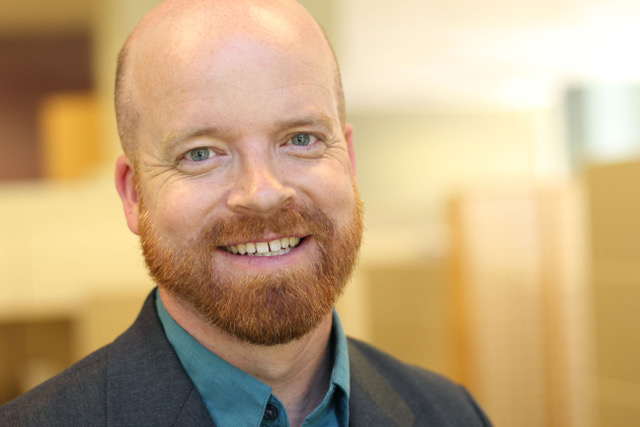 As director of Center for Pollinators in Energy at Fresh Energy, Rob Davis helps accelerate the nation’s transition to use of clean and renewable energy. Davis’ work on pollinator-friendly solar has been featured in trainings by the U.S. Department of the Interior’s National Conservation Training Center, the U.S. Department of Energy, the Electric Power Resource Institute, and the North Carolina Clean Energy Technology Center. Rob’s work in Minnesota was recognized by MnSEIA with the 2018 Excellence in Solar Policy Award. Along with a senior analyst from the National Renewable Energy Laboratory (NREL), Davis is co-chair of the research and outreach committee for NREL’s study into low-impact and pollinator-friendly solar development approaches.Previously, Rob helped launch technology start-ups and created the international crowdsourced campaign that launched the Firefox web browser. His work has been highlighted in a Solar Power World cover story as well as featured in Scientific American, National Geographic, and Wired; referenced in the 25th anniversary edition of Trivial Pursuit; and included in the permanent collection of the Smithsonian’s National Museum of American History. City Pages, the alternative weekly of Minneapolis/St. Paul, called Rob “a good-natured but gravely determined change agent.” He is a two-time recipient of the Teresa Du Bois Exline Award for Best Practices in Communications and Marketing and a graduate of Macalester College.
As director of Center for Pollinators in Energy at Fresh Energy, Rob Davis helps accelerate the nation’s transition to use of clean and renewable energy. Davis’ work on pollinator-friendly solar has been featured in trainings by the U.S. Department of the Interior’s National Conservation Training Center, the U.S. Department of Energy, the Electric Power Resource Institute, and the North Carolina Clean Energy Technology Center. Rob’s work in Minnesota was recognized by MnSEIA with the 2018 Excellence in Solar Policy Award. Along with a senior analyst from the National Renewable Energy Laboratory (NREL), Davis is co-chair of the research and outreach committee for NREL’s study into low-impact and pollinator-friendly solar development approaches.Previously, Rob helped launch technology start-ups and created the international crowdsourced campaign that launched the Firefox web browser. His work has been highlighted in a Solar Power World cover story as well as featured in Scientific American, National Geographic, and Wired; referenced in the 25th anniversary edition of Trivial Pursuit; and included in the permanent collection of the Smithsonian’s National Museum of American History. City Pages, the alternative weekly of Minneapolis/St. Paul, called Rob “a good-natured but gravely determined change agent.” He is a two-time recipient of the Teresa Du Bois Exline Award for Best Practices in Communications and Marketing and a graduate of Macalester College. -
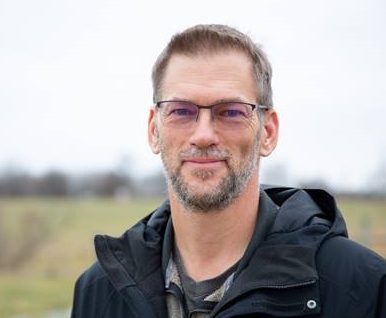 Bill Davison is the Tree Crop Development Lead for the Savanna Institute, which is a non-profit organization devoted to catalyzing the development and adoption of resilient, scalable agroforestry in the Midwest. Bill holds a B.S. in Wildlife Biology from the University of Montana and an M.S. in Biology from Eastern Illinois University. Following graduate school, he worked for The Nature Conservancy as a Land Steward and then spent seven years as an organic vegetable farmer in central Illinois. He transitioned from farming to working as a Local Food System Educator with University of Illinois Extension where he developed initiatives to support viable food systems for food-grade grains and the products of agroforestry. As part of this work he started the Grand Prairie Grain Guild and the Refuge Food Forest as well as being a founding member of The Artisan Grain Collaborative, Regenerate Illinois, and The Land Connection. He developed an interest in plant breeding through this work and is currently breeding two composite populations of flint corn, a composite population of cereal rye, open-pollinated vegetables, and tree crops. In addition to his breeding work, he has taught hundreds of people how to propagate plants through grafting, rooted cuttings, and direct seeding. His seeds and plants are currently being grown in ten states, and he recently shared his seed corn with Vandana Shiva.
Bill Davison is the Tree Crop Development Lead for the Savanna Institute, which is a non-profit organization devoted to catalyzing the development and adoption of resilient, scalable agroforestry in the Midwest. Bill holds a B.S. in Wildlife Biology from the University of Montana and an M.S. in Biology from Eastern Illinois University. Following graduate school, he worked for The Nature Conservancy as a Land Steward and then spent seven years as an organic vegetable farmer in central Illinois. He transitioned from farming to working as a Local Food System Educator with University of Illinois Extension where he developed initiatives to support viable food systems for food-grade grains and the products of agroforestry. As part of this work he started the Grand Prairie Grain Guild and the Refuge Food Forest as well as being a founding member of The Artisan Grain Collaborative, Regenerate Illinois, and The Land Connection. He developed an interest in plant breeding through this work and is currently breeding two composite populations of flint corn, a composite population of cereal rye, open-pollinated vegetables, and tree crops. In addition to his breeding work, he has taught hundreds of people how to propagate plants through grafting, rooted cuttings, and direct seeding. His seeds and plants are currently being grown in ten states, and he recently shared his seed corn with Vandana Shiva. -
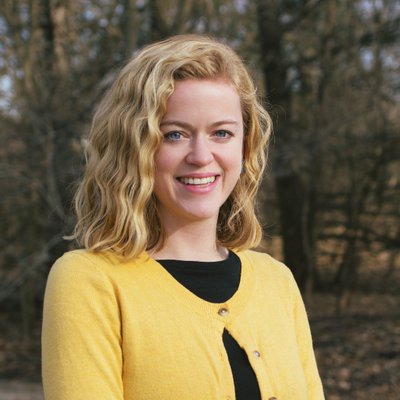 Catherine DeLong is the Special Projects and Policy Director for the Soil and Water Conservation Society where she leads their grant initiatives. She holds an M.S. in Soil Science from Iowa State University and a B.A. in International Relations from the University of St. Andrews in Scotland. Prior to joining the Society, Catherine worked at the intersection of science and communications as a consultant for a climate adaption course for the USDA, a Communications Specialist for Iowa State’s Global Agriculture Programs, and founder and coordinator of a blog for the United Nations’ International Year of Soils in 2015.
Catherine DeLong is the Special Projects and Policy Director for the Soil and Water Conservation Society where she leads their grant initiatives. She holds an M.S. in Soil Science from Iowa State University and a B.A. in International Relations from the University of St. Andrews in Scotland. Prior to joining the Society, Catherine worked at the intersection of science and communications as a consultant for a climate adaption course for the USDA, a Communications Specialist for Iowa State’s Global Agriculture Programs, and founder and coordinator of a blog for the United Nations’ International Year of Soils in 2015. -
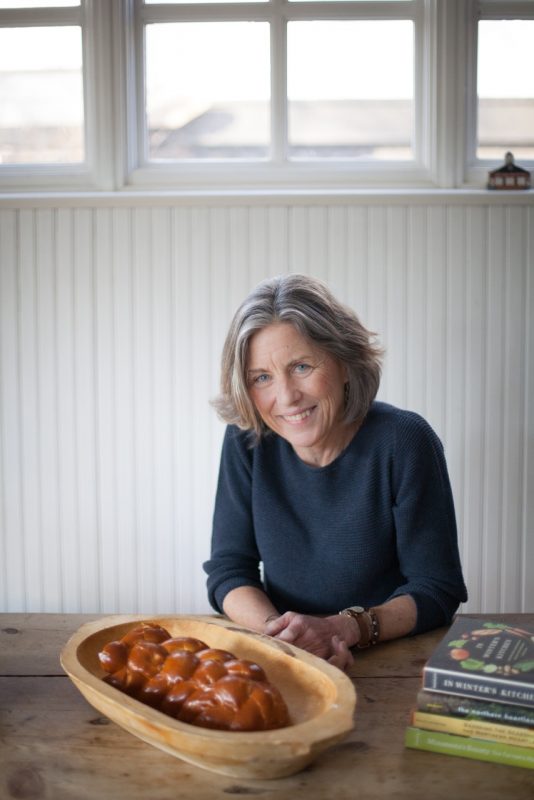 Beth Dooley is an Endowed Chair, Minnesota Institute for Sustainable Agriculture, food journalist and author of six cookbooks. She collaborated with Sean Sherman on The Sioux Chef’s Indigenous Kitchen, James Beard Award Best American Cookbook, and with Lucia Watson, James Beard nominee, Savoring the Seasons of the Northern Heartland. Other titles include The Birchwood Café Cookbook, Minnesota’s Bounty,
Beth Dooley is an Endowed Chair, Minnesota Institute for Sustainable Agriculture, food journalist and author of six cookbooks. She collaborated with Sean Sherman on The Sioux Chef’s Indigenous Kitchen, James Beard Award Best American Cookbook, and with Lucia Watson, James Beard nominee, Savoring the Seasons of the Northern Heartland. Other titles include The Birchwood Café Cookbook, Minnesota’s Bounty,
The Farmers Market Cookbook; and In Winter’s Kitchen: Growing Roots and Breaking
Bread in the Northern Heartland, collection of stories about our food shed. Beth is a
columnist for The Star Tribune and a regular contributor to Minnesota Public Radio’s
Appetites and KARE 11 TV. She’s currently at work on her next book, The Perennial
Kitchen: A Field Guide with Recipes. -
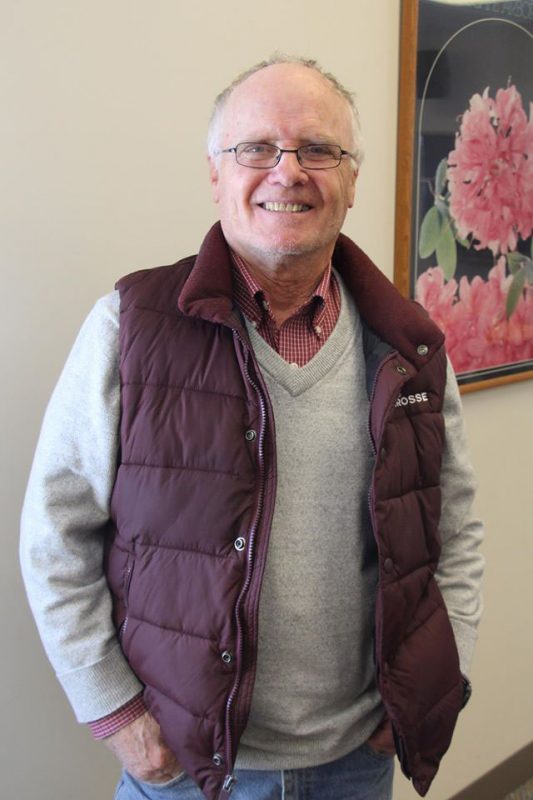 Carmen Fernholz and his wife Sally farm near Madison Minnesota. They operate 450 acres of diversified crops including corn, soybeans alfalfa and various small grains as well as cover crop practices. The farm was first certified organic in 1975. Over the years Carmen has been involved in cooperative research with the University of Minnesota with any number of research plots on his farm in any given year. He and Sally are currently finishing up transitioning operation of the farm to Luke and Ali Peterson who will begin the actual management in 2020. Carmen will work closely with the Petersons, however, in introducing a cow/calf beef enterprise on the farm beginning in 2020.
Carmen Fernholz and his wife Sally farm near Madison Minnesota. They operate 450 acres of diversified crops including corn, soybeans alfalfa and various small grains as well as cover crop practices. The farm was first certified organic in 1975. Over the years Carmen has been involved in cooperative research with the University of Minnesota with any number of research plots on his farm in any given year. He and Sally are currently finishing up transitioning operation of the farm to Luke and Ali Peterson who will begin the actual management in 2020. Carmen will work closely with the Petersons, however, in introducing a cow/calf beef enterprise on the farm beginning in 2020. -
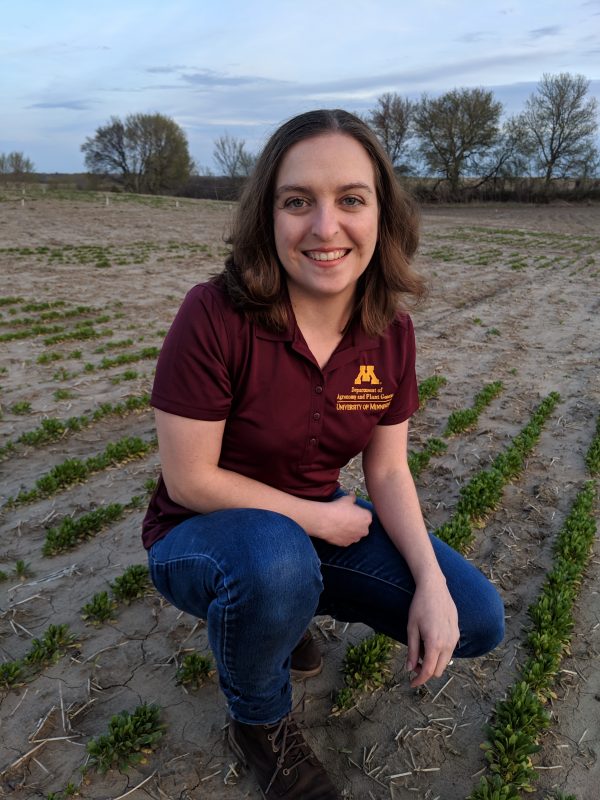 Dr. Katherine Frels is a Research Associate in the Department of Agronomy and Plant Genetics at the University of Minnesota. She is an applied plant breeder with experience in both molecular and field-based breeding. Her current research focuses on breeding and developing field pennycress as a winter annual cash cover crop. Katherine is part of a multi-disciplinary team working to improve pennycress genetics, agronomics, and management and exploring the potential end-uses and economics for relaying or double cropping pennycress in MN. She obtained a B.S. in Agronomy from Iowa State University (2011) and Ph.D. in Agronomy and Horticulture from the University of Nebraska-Lincoln (2015).
Dr. Katherine Frels is a Research Associate in the Department of Agronomy and Plant Genetics at the University of Minnesota. She is an applied plant breeder with experience in both molecular and field-based breeding. Her current research focuses on breeding and developing field pennycress as a winter annual cash cover crop. Katherine is part of a multi-disciplinary team working to improve pennycress genetics, agronomics, and management and exploring the potential end-uses and economics for relaying or double cropping pennycress in MN. She obtained a B.S. in Agronomy from Iowa State University (2011) and Ph.D. in Agronomy and Horticulture from the University of Nebraska-Lincoln (2015). -
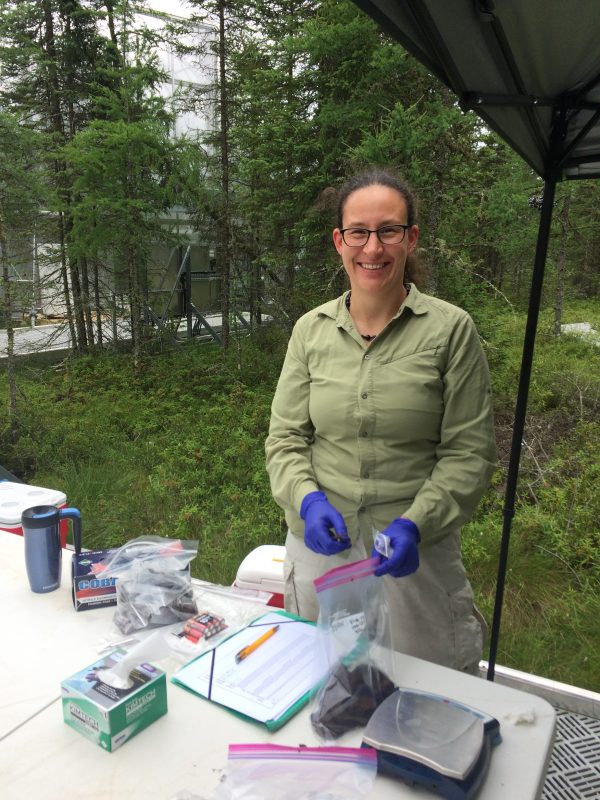 Jessica Gutknecht is an Assistant Professor in the Department of Soil, Water, and Climate and an Associate of the Institute on the Environment, with a PhD in soil microbiology from the University of Wisconsin. She is a soil ecologist with years of experience understanding how soil and soil biological communities mediate ecosystem responses to climate change in both natural and agricultural landscapes. Her current research is centered on the idea that the soil beneath our feet offers solutions for the adaptation and mitigation of climate change, as well as other environmental challenges. Specifically, she is exploring how regenerative agriculture and perennial cropping systems, aimed at protecting soils, can adapt agricultural management for climate change, serving both people and the environment.
Jessica Gutknecht is an Assistant Professor in the Department of Soil, Water, and Climate and an Associate of the Institute on the Environment, with a PhD in soil microbiology from the University of Wisconsin. She is a soil ecologist with years of experience understanding how soil and soil biological communities mediate ecosystem responses to climate change in both natural and agricultural landscapes. Her current research is centered on the idea that the soil beneath our feet offers solutions for the adaptation and mitigation of climate change, as well as other environmental challenges. Specifically, she is exploring how regenerative agriculture and perennial cropping systems, aimed at protecting soils, can adapt agricultural management for climate change, serving both people and the environment. -
 Fred Iutzi, President of The Land Institute since 2016, grew up on an Illinois farm, and describes the fighting of soil erosion as a deep-rooted moral value instilled by his parents and grandparents. He has focused his career on the sustainability of agriculture and rural communities. Before moving to Kansas, he managed agriculture, energy and cooperative development programs for the Illinois Institute for Rural Affairs at Western Illinois University. He joined the Institute’s graduate Fellows program in 2002, where he studied the possibility of growing small grains in mixtures with forage legumes. Fred earned a bachelor’s degree in geography and plant sciences at the University of Missouri-Columbia, and a master’s degree in sustainable agriculture and agronomy at Iowa State University. He has served in leadership roles in numerous environmental and agriculture organizations, including vice chair of the board of the Agricultural Watershed Institute and founding chair of the Illinois Biomass Working Group.
Fred Iutzi, President of The Land Institute since 2016, grew up on an Illinois farm, and describes the fighting of soil erosion as a deep-rooted moral value instilled by his parents and grandparents. He has focused his career on the sustainability of agriculture and rural communities. Before moving to Kansas, he managed agriculture, energy and cooperative development programs for the Illinois Institute for Rural Affairs at Western Illinois University. He joined the Institute’s graduate Fellows program in 2002, where he studied the possibility of growing small grains in mixtures with forage legumes. Fred earned a bachelor’s degree in geography and plant sciences at the University of Missouri-Columbia, and a master’s degree in sustainable agriculture and agronomy at Iowa State University. He has served in leadership roles in numerous environmental and agriculture organizations, including vice chair of the board of the Agricultural Watershed Institute and founding chair of the Illinois Biomass Working Group. -
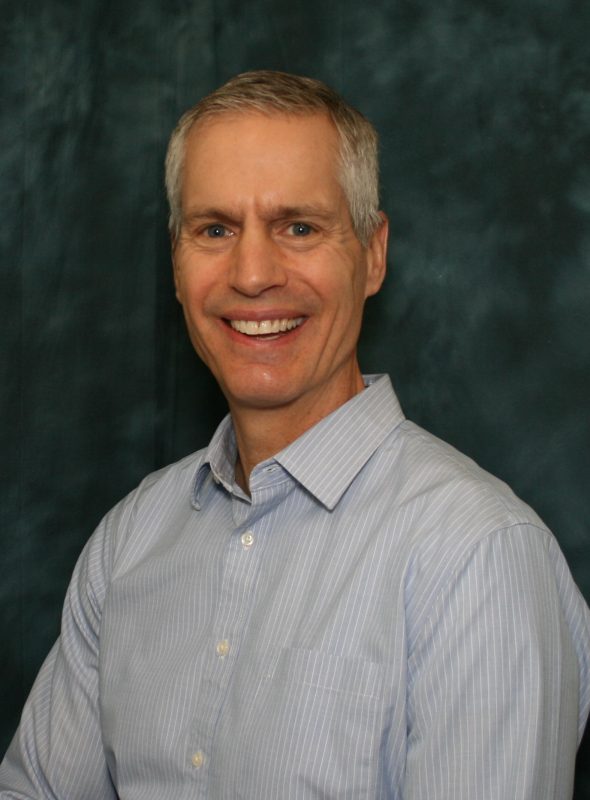 Jeff Jackson is an Extension Educator for the University of Minnesota’s silvopasture and hybrid poplar programs. His chief area of interest is developing a network of people to support the use of silvopasture as a tool to promote the restoration of oak savanna habitat in Minnesota. His areas of concentration include:
Jeff Jackson is an Extension Educator for the University of Minnesota’s silvopasture and hybrid poplar programs. His chief area of interest is developing a network of people to support the use of silvopasture as a tool to promote the restoration of oak savanna habitat in Minnesota. His areas of concentration include:- -Understanding social network dynamics behind innovation networks
- -Collaborative learning forums to identify options and design new programs
- -Webinar and workshop series to promote knowledge transfer and strategic relationships
Jeff and his wife live in Duluth, MN. He has a Master of Fisheries and Aquatic Sciences, University of Florida, 2016 and a B.A Biology, Humboldt State University, 1986
-
 Randy Jackson is a grassland ecologist in the Department of Agronomy at the University of Wisconsin-Madison. He is Director of the recently-funded USDA project entitled, Grassland 2.0-An Agroecological Transformation Plan for perennial grassland agriculture, which is a 5-year collaboration with farmers, aggregators, distributors, processors, buyers, and consumers to reimagine and transform our agricultural system to one that restores much of the function of the tallgrass prairie while providing healthy products, healthy communities, and healthy ecosystems. His research explores how management of agroecosystems affect their structure, function and the services they provide. Dr. Jackson earned a B.S. in Environmental Sciences from UC Riverside, an M.S. in Natural Resource Science from Humboldt State University, and a Ph.D. in Ecosystem Sciences from UC Berkeley.
Randy Jackson is a grassland ecologist in the Department of Agronomy at the University of Wisconsin-Madison. He is Director of the recently-funded USDA project entitled, Grassland 2.0-An Agroecological Transformation Plan for perennial grassland agriculture, which is a 5-year collaboration with farmers, aggregators, distributors, processors, buyers, and consumers to reimagine and transform our agricultural system to one that restores much of the function of the tallgrass prairie while providing healthy products, healthy communities, and healthy ecosystems. His research explores how management of agroecosystems affect their structure, function and the services they provide. Dr. Jackson earned a B.S. in Environmental Sciences from UC Riverside, an M.S. in Natural Resource Science from Humboldt State University, and a Ph.D. in Ecosystem Sciences from UC Berkeley. -
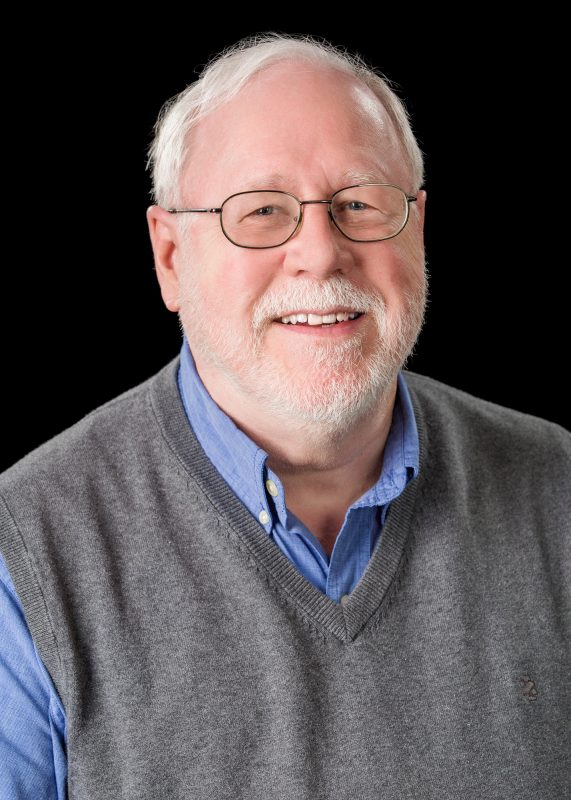 Steve John is the co-founder and executive director of the Agricultural Watershed Institute, a nonprofit organization established in 2003 in Decatur, Illinois. AWI’s mission is to conduct research and educational programs on practices and policies that improve water quality, maintain or restore ecosystem health, and conserve land and water resources in agricultural watersheds. He serves on the Steering Committee of Green Lands Blue Waters and chairs the Perennial Biomass Initiative committee.
Steve John is the co-founder and executive director of the Agricultural Watershed Institute, a nonprofit organization established in 2003 in Decatur, Illinois. AWI’s mission is to conduct research and educational programs on practices and policies that improve water quality, maintain or restore ecosystem health, and conserve land and water resources in agricultural watersheds. He serves on the Steering Committee of Green Lands Blue Waters and chairs the Perennial Biomass Initiative committee. -
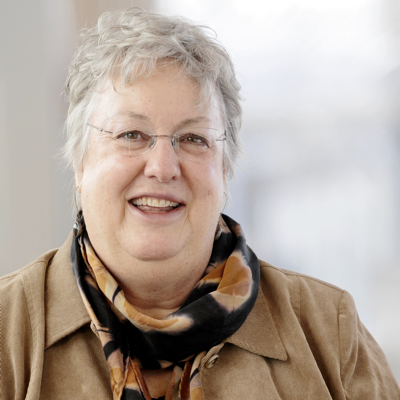 Theresa Keaveny is the Executive Director of the Sustainable Farming Association of Minnesota, a 30 year old grassroots farmer-to-farmer network that advances the sustainable agriculture principles of environmental stewardship, economic resilience and strong, diverse communities. She coordinates SFA’s programs and planning, budget development and fundraising. Theresa has been a rural community organizer in the Dakota’s and Montana, working on agriculture, clean energy and conservation issues.
Theresa Keaveny is the Executive Director of the Sustainable Farming Association of Minnesota, a 30 year old grassroots farmer-to-farmer network that advances the sustainable agriculture principles of environmental stewardship, economic resilience and strong, diverse communities. She coordinates SFA’s programs and planning, budget development and fundraising. Theresa has been a rural community organizer in the Dakota’s and Montana, working on agriculture, clean energy and conservation issues. -
Keefe Keeley, co-Executive Director of the Savanna Institute, works to advance agroforestry as a land and climate solution. Keefe’s experience includes farm business, research, public agency, and civil society initiatives, and he recently co-edited a bioregional anthology called The Driftless Reader. Keefe holds degrees in biology from Swarthmore College, and in agroecology from University of Wisconsin-Madison, where he has a forthcoming dissertation on silvopasture.
-
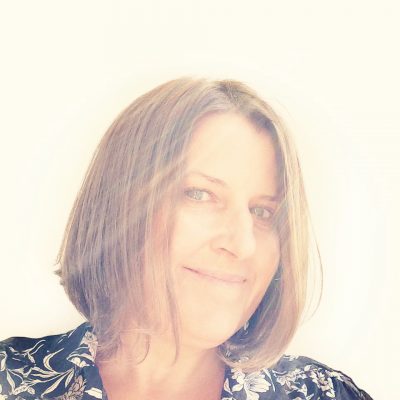 Tammy Kimbler is the Assistant Manager of Brand Experience for the organic food brand Cascadian Farm, part of General Mills, Inc. A native of California, from a long line of farmers and ranchers, she bucked country life to spend her early career in Hollywood, working for NBC Entertainment in primetime television. In 2001, Tammy relocated to Minnesota to continue her career in advertising working with the state’s fortune 500 companies like 3M, Target, Cargill and General Mills. It was here that she reconnected with her agricultural roots through the burgeoning Midwest food movement. Always deeply rooted in the world of cooking and local ingredients, Tammy is passionate about organic and sustainable agriculture-related initiatives that focus on changing our food system for the better. Most recently, she led Cascadian Farm’s launch of the first nationally released breakfast cereal made with the perennial grain Kernza®, to raise awareness with consumers and the industry of the potential of climate-beneficial ingredients.
Tammy Kimbler is the Assistant Manager of Brand Experience for the organic food brand Cascadian Farm, part of General Mills, Inc. A native of California, from a long line of farmers and ranchers, she bucked country life to spend her early career in Hollywood, working for NBC Entertainment in primetime television. In 2001, Tammy relocated to Minnesota to continue her career in advertising working with the state’s fortune 500 companies like 3M, Target, Cargill and General Mills. It was here that she reconnected with her agricultural roots through the burgeoning Midwest food movement. Always deeply rooted in the world of cooking and local ingredients, Tammy is passionate about organic and sustainable agriculture-related initiatives that focus on changing our food system for the better. Most recently, she led Cascadian Farm’s launch of the first nationally released breakfast cereal made with the perennial grain Kernza®, to raise awareness with consumers and the industry of the potential of climate-beneficial ingredients.When she’s not standing in a Kernza® field or drinking a Kernza® beer, Tammy spends her time teaching food preservation and urban agriculture classes, as well as tending her flock of backyard chickens, and numerous community gardens in Minneapolis. She eats well and loves to feed others as often as possible.
-
 Steve Morse is Executive Director of the Minnesota Environmental Partnership in Saint Paul, MN. He is a well-known leader in the MN environmental community with expertise in public policy and a broad range of environmental issues, as well as inside knowledge of both legislative and state agency processes. Prior to joining MEP in 2006, Steve served as a Senior Fellow in the College of Agriculture, Food and Environmental Sciences at the University of Minnesota. While there, he developed the Green Lands Blue Waters initiative. Steve was Deputy Commissioner of the Minnesota Department of Natural Resources from 1999-2003 and represented southeast Minnesota in the State Senate for 12 years, beginning in 1987.
Steve Morse is Executive Director of the Minnesota Environmental Partnership in Saint Paul, MN. He is a well-known leader in the MN environmental community with expertise in public policy and a broad range of environmental issues, as well as inside knowledge of both legislative and state agency processes. Prior to joining MEP in 2006, Steve served as a Senior Fellow in the College of Agriculture, Food and Environmental Sciences at the University of Minnesota. While there, he developed the Green Lands Blue Waters initiative. Steve was Deputy Commissioner of the Minnesota Department of Natural Resources from 1999-2003 and represented southeast Minnesota in the State Senate for 12 years, beginning in 1987. -
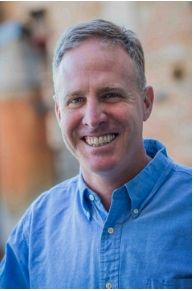 Mark Muller is director of the Mississippi River program at the McKnight Foundation. He joined McKnight as a program officer in 2013, and became program director in 2015. Under his direction the program has developed a new theory of change and logic model, placing a greater emphasis on broadening the constituencies willing to take actions to protect the Mississippi River. Some recent Mississippi River program initiatives include supporting more sustainability criteria in Midwest agricultural supply chains, and more collaboration with community-based organizations to support environmental justice concerns along the River.
Mark Muller is director of the Mississippi River program at the McKnight Foundation. He joined McKnight as a program officer in 2013, and became program director in 2015. Under his direction the program has developed a new theory of change and logic model, placing a greater emphasis on broadening the constituencies willing to take actions to protect the Mississippi River. Some recent Mississippi River program initiatives include supporting more sustainability criteria in Midwest agricultural supply chains, and more collaboration with community-based organizations to support environmental justice concerns along the River.Muller has a background in environmental engineering and agricultural policy. Previous experience includes 14 years at the Institute for Agriculture and Trade Policy, where he directed a food systems fellowship program and led several Mississippi River-related initiatives addressing nutrient pollution and promoting sustainable river transportation systems. Muller also taught science for two years at a high school in New York City, volunteered for a year in Honduras and Guatemala, and has served on several nonprofit boards and a local natural foods co-op. He has a BA in physics and a MA in environmental engineering.
-
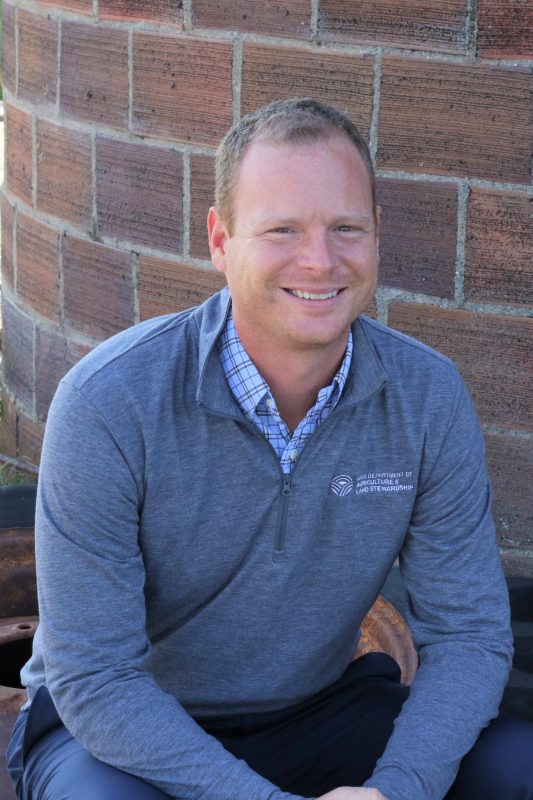 Will Myers grew up outside of Dallas Center, Iowa. He earned his Bachelor’s degree from Iowa State University in Environmental Science and a Master’s Degree in Natural Resources from the University of Nebraska-Lincoln. Will has over 17 years of experience working in water quality and agriculture programs, serving in leadership positions in both Iowa and Nebraska.
Will Myers grew up outside of Dallas Center, Iowa. He earned his Bachelor’s degree from Iowa State University in Environmental Science and a Master’s Degree in Natural Resources from the University of Nebraska-Lincoln. Will has over 17 years of experience working in water quality and agriculture programs, serving in leadership positions in both Iowa and Nebraska. Will Myers joined the Iowa Department of Agriculture and Land Stewardship in 2015 as the Water Quality Initiative Projects Coordinator. During his tenure, he has provided leadership in the development and administration of over 80 water quality and conservation projects located across the state in support of the Iowa Nutrient Reduction Strategy implementation efforts. In addition to these projects, he has worked to develop key partnerships and associated infrastructure to increase the pace and scale of conservation practice adoption across Iowa. He has recently transitioned into a new role within the Department as the Field Services Bureau Chief where his work continues in promoting new opportunities that will advance our collective conservation, soil health and water quality goals in Iowa.
-
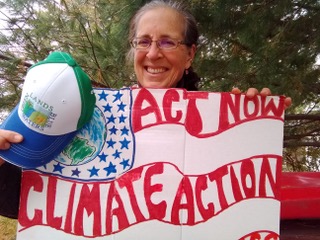 Jeri Neal, consultant – Retired after 22 years with the Leopold Center for Sustainable Agriculture in Iowa as grants manager and ecological systems and research program leader; currently consulting in areas of sustainability, agriculture, ecology, grants, funding and outreach. Jeri has a background in grain science and milling management, and international development studies. Neal is currently serving as Chair, Green Lands Blue Waters steering committee. She is active in state and local bicycle advocacy and on the steering committee for the Ames Climate Action Team.
Jeri Neal, consultant – Retired after 22 years with the Leopold Center for Sustainable Agriculture in Iowa as grants manager and ecological systems and research program leader; currently consulting in areas of sustainability, agriculture, ecology, grants, funding and outreach. Jeri has a background in grain science and milling management, and international development studies. Neal is currently serving as Chair, Green Lands Blue Waters steering committee. She is active in state and local bicycle advocacy and on the steering committee for the Ames Climate Action Team. -
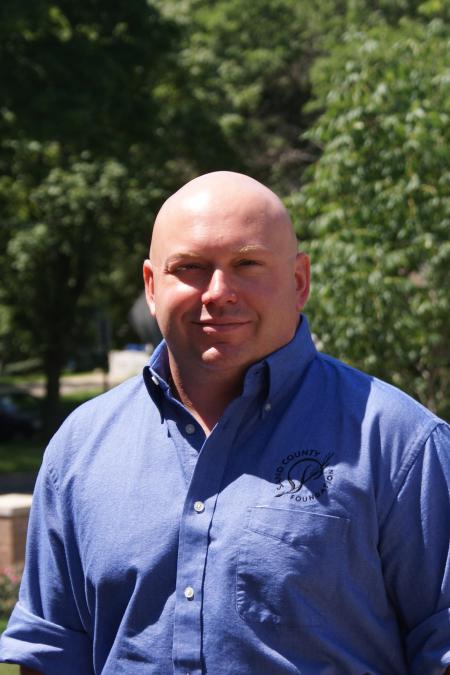 Mr. Greg Olson is the Field Projects Director at Sand County Foundation, a non-profit organization that works on private lands conservation following the Land Ethic concepts of Aldo Leopold. Greg oversees field project activities related to agricultural conservation and water quality, as well as providing technical assistance in Sand County Foundation Urban-Ag Partnership projects. Greg started with Sand County Foundation in 2010 as coordinator of a watershed nutrient management project in the West Branch of the Milwaukee River. In 2013, he began overseeing all field activities for water quality and nutrient management work. Born and raised in the Upper Peninsula of Mich., Greg has a degree in Wildlife Biology and Management from Central Michigan University. From 2004 to 2010, he worked in wetland, prairie, and forest restoration and research. Prior to Sand County Foundation, Greg worked for Ducks Unlimited, the Nature Conservancy, USDA – Natural Resources Conservation Service and the US Geological Survey.
Mr. Greg Olson is the Field Projects Director at Sand County Foundation, a non-profit organization that works on private lands conservation following the Land Ethic concepts of Aldo Leopold. Greg oversees field project activities related to agricultural conservation and water quality, as well as providing technical assistance in Sand County Foundation Urban-Ag Partnership projects. Greg started with Sand County Foundation in 2010 as coordinator of a watershed nutrient management project in the West Branch of the Milwaukee River. In 2013, he began overseeing all field activities for water quality and nutrient management work. Born and raised in the Upper Peninsula of Mich., Greg has a degree in Wildlife Biology and Management from Central Michigan University. From 2004 to 2010, he worked in wetland, prairie, and forest restoration and research. Prior to Sand County Foundation, Greg worked for Ducks Unlimited, the Nature Conservancy, USDA – Natural Resources Conservation Service and the US Geological Survey. -
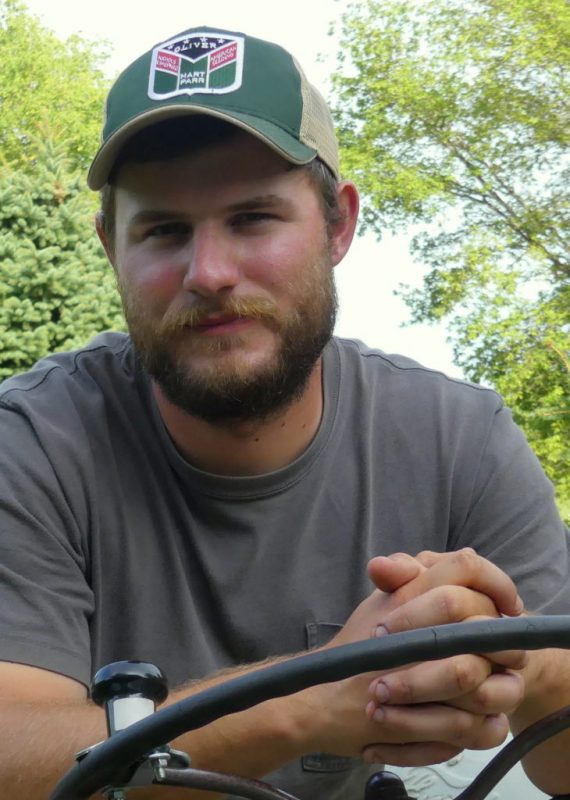 Wyatt Parks is originally from Washington. He studied at Fairhaven College where he received an Agroecology and Sustainable Natural Resource Management degree. Wyatt’s time in academia was spent learning and understanding the value of sustainable agricultural ecosystems. Before leaving Washington, he worked as a Farm Tech for Hopewell Farm, a mixed production farm in Whatcom County WA. At Hopewell, he worked closely with 180 head organic dairy, over 500 acres of organic vegetables and field crops, and a variety of perennial seed and fruit crops. In the summer of 2018, Wyatt moved to Northfield and joined the Main Street Project team. As Co-Farm Manager at the 100-acre farm, Wyatt oversees the daily operations from infrastructure development to repairing broken machinery.
Wyatt Parks is originally from Washington. He studied at Fairhaven College where he received an Agroecology and Sustainable Natural Resource Management degree. Wyatt’s time in academia was spent learning and understanding the value of sustainable agricultural ecosystems. Before leaving Washington, he worked as a Farm Tech for Hopewell Farm, a mixed production farm in Whatcom County WA. At Hopewell, he worked closely with 180 head organic dairy, over 500 acres of organic vegetables and field crops, and a variety of perennial seed and fruit crops. In the summer of 2018, Wyatt moved to Northfield and joined the Main Street Project team. As Co-Farm Manager at the 100-acre farm, Wyatt oversees the daily operations from infrastructure development to repairing broken machinery. -
 Laura Paine is outreach coordinator for Grassland 2.0 at the University of Wisconsin-Madison, an effort aimed at exploring pathways toward agroecological transformation of the North American Corn Belt. She also serves as co-chair of the Green Lands Blue Waters Perennial Forage team and program director for Dairy Grazing Apprenticeship (DGA), the first-in-the-nation registered formal Apprenticeship in agriculture. Laura has been involved in agriculture education and research in a variety of roles for more than 25 years, serving as Grazing & Organic Agriculture Specialist for the Wisconsin Department of Agriculture, Trade and Consumer Protection, conducting grazing research and education at UW-Madison and UW-Extension. Laura and her husband raise grass-fed beef on their 82-acre farm near Columbus, WI.
Laura Paine is outreach coordinator for Grassland 2.0 at the University of Wisconsin-Madison, an effort aimed at exploring pathways toward agroecological transformation of the North American Corn Belt. She also serves as co-chair of the Green Lands Blue Waters Perennial Forage team and program director for Dairy Grazing Apprenticeship (DGA), the first-in-the-nation registered formal Apprenticeship in agriculture. Laura has been involved in agriculture education and research in a variety of roles for more than 25 years, serving as Grazing & Organic Agriculture Specialist for the Wisconsin Department of Agriculture, Trade and Consumer Protection, conducting grazing research and education at UW-Madison and UW-Extension. Laura and her husband raise grass-fed beef on their 82-acre farm near Columbus, WI. -
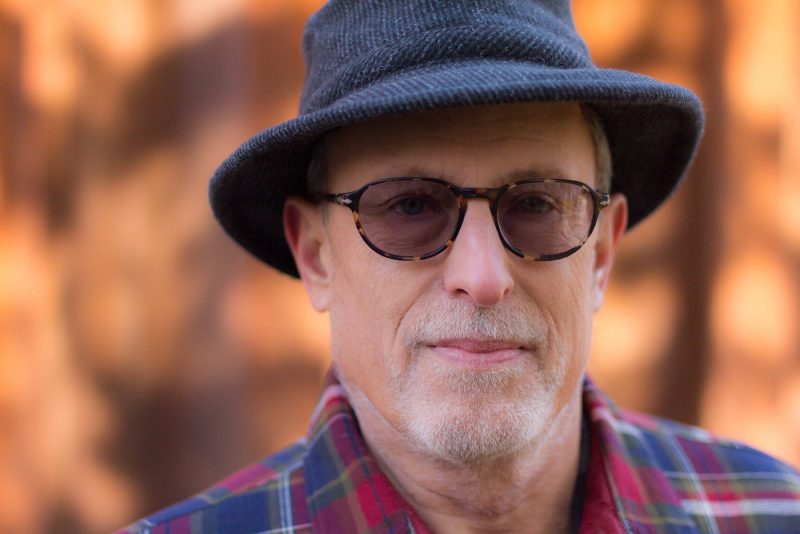 Christopher J. Patton, MA, MBA Minneapolis, MN. 612-418-4624, info@midwest-elderberry.coop. Degrees earned at The Hebrew University, Jerusalem – Israeli Archeology, Old World Prehistory (including paleo-environments) and University of St. Thomas, business management. Business experience includes: 3 years Exec VP for a small advertising, marketing and public relations company; 5 years as an info technologist at Pillsbury Engineering / International R&D, (Haagen-Dazs International); and 14 years adjunct professor for two Midwest universities teaching a broad range of accelerated business, culture and history courses to undergraduate and graduate adults; 6 years farming elderberry.
Christopher J. Patton, MA, MBA Minneapolis, MN. 612-418-4624, info@midwest-elderberry.coop. Degrees earned at The Hebrew University, Jerusalem – Israeli Archeology, Old World Prehistory (including paleo-environments) and University of St. Thomas, business management. Business experience includes: 3 years Exec VP for a small advertising, marketing and public relations company; 5 years as an info technologist at Pillsbury Engineering / International R&D, (Haagen-Dazs International); and 14 years adjunct professor for two Midwest universities teaching a broad range of accelerated business, culture and history courses to undergraduate and graduate adults; 6 years farming elderberry.Founder /President of the Midwest Elderberry Cooperative (2012), Although the coop has only about 25 paid members, he manages networked relationships with about 100 elderberry growers throughout the US. His goal is 2,250 acres of farmed and sold elderberries by 2025. MEC produces and markets native North American elder berry and flower product ingredients to (mostly) small food and beverage businesses: bulk destemmed, frozen, sanitized elderberries, dried berries, dried flowers, bulk frozen juice, freeze dried berries, and developing IQF berries and puree.
As CEO of River Hills Harvest Marketers, LLC, Chris brings extensive knowledge about marketing shelf stable retail products for Terry Durham’s River Hills Harvest brand of native elderberry products, a leading Missouri based elderberry producer-processor. He manages regional distribution relationships in Minnesota, Wisconsin and Iowa. Nationally RHHM supplies 500 retail locations through KeHE Distributors and direct shipping.
-
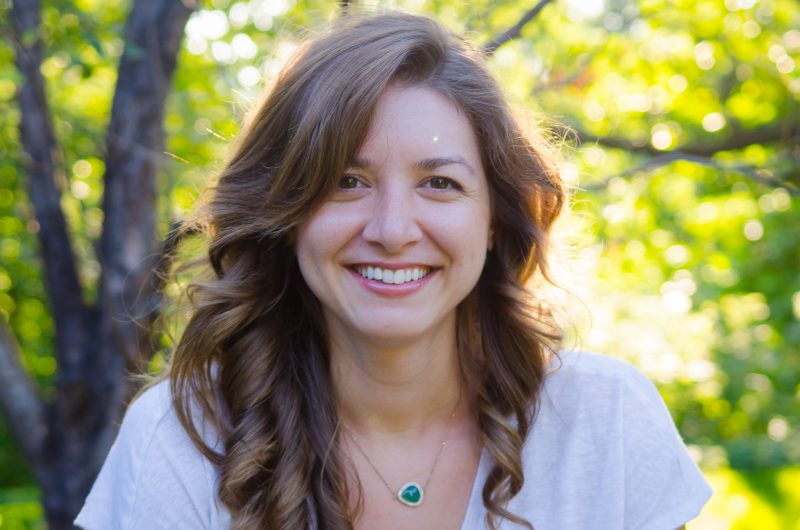 Sharon Perrone is a New Jersey native who first became interested in agriculture while working for the Dickinson College Farm’s inaugural summer crew in 2008. She earned her BS in biochemistry & molecular biology and Italian studies in 2011 from the same school, after which she worked on a series of farms in Oregon prior to settling in Washington, D.C. to advocate for sustainable agriculture law and policy with a focus on soil health. She is currently working on her Ph.D. in Applied Plant Sciences at the U of M with a focus in agroecology, soil health, and nutrient cycling. Her broader interest is to integrate science-based minimum-input conservation practices into national agricultural extension, outreach, and policy; specifically, to prioritize soil health enhancing practices that contribute to both high yield as well as effective and healthy land management.
Sharon Perrone is a New Jersey native who first became interested in agriculture while working for the Dickinson College Farm’s inaugural summer crew in 2008. She earned her BS in biochemistry & molecular biology and Italian studies in 2011 from the same school, after which she worked on a series of farms in Oregon prior to settling in Washington, D.C. to advocate for sustainable agriculture law and policy with a focus on soil health. She is currently working on her Ph.D. in Applied Plant Sciences at the U of M with a focus in agroecology, soil health, and nutrient cycling. Her broader interest is to integrate science-based minimum-input conservation practices into national agricultural extension, outreach, and policy; specifically, to prioritize soil health enhancing practices that contribute to both high yield as well as effective and healthy land management. -
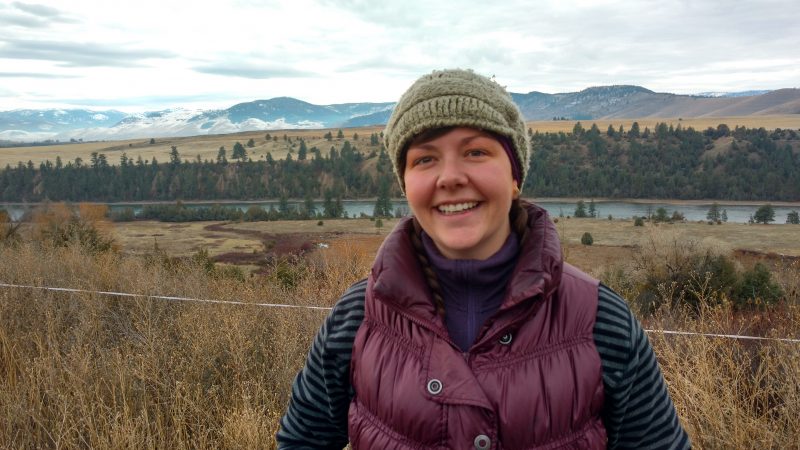 Tessa Peters is the Commercialization Manager for The Land Institute. In this role, she aspires to provide guidance as Kernza® Perennial Grain and other crops leave the realm of pure research and begin to end up on the plates of consumers across the globe. She has a PhD from the University of Wisconsin – Madison in Plant Breeding and Plant Genetics, works remotely from Montana, and travels a lot. She works closely with researchers, growers, processors, and food makers to help steward the transition from annual to perennial agriculture.
Tessa Peters is the Commercialization Manager for The Land Institute. In this role, she aspires to provide guidance as Kernza® Perennial Grain and other crops leave the realm of pure research and begin to end up on the plates of consumers across the globe. She has a PhD from the University of Wisconsin – Madison in Plant Breeding and Plant Genetics, works remotely from Montana, and travels a lot. She works closely with researchers, growers, processors, and food makers to help steward the transition from annual to perennial agriculture. -
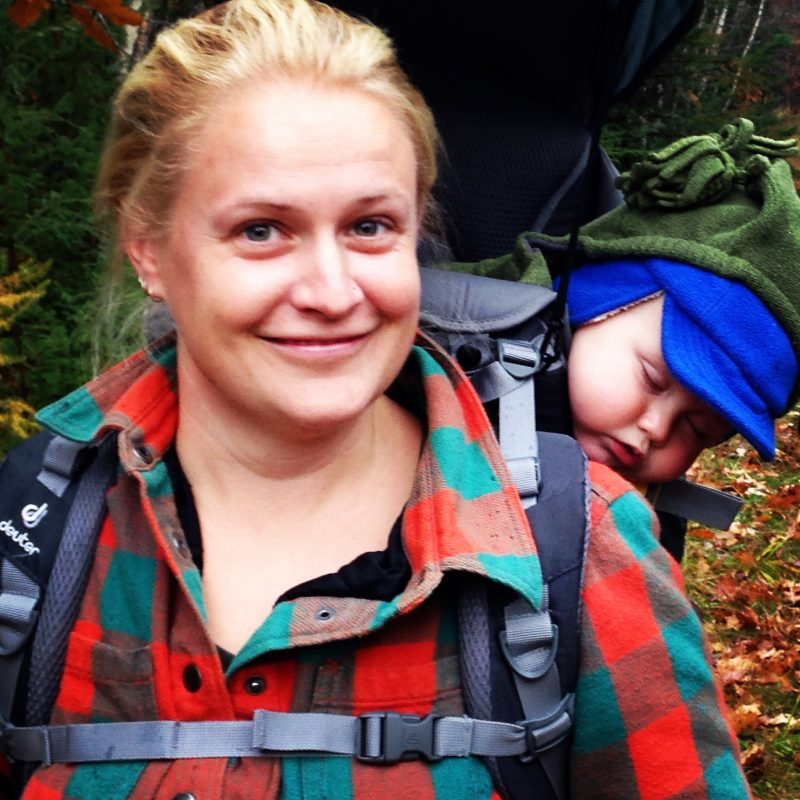 Marie Raboin is a conservation specialist for Dane County Land Conservation. Previous work has included 10 years with NRCS, several years in international development as well as research in weed management at UW Madison. Her most recent focus has been working closely with several farmers in the Yahara Watershed on integrating livestock into cropping systems through cover crops as we as rotational grazing on both beef and dairy operations. In addition, she also owns a farm to table restaurant giving her insight and expertise in local food systems in the Madison metro area.
Marie Raboin is a conservation specialist for Dane County Land Conservation. Previous work has included 10 years with NRCS, several years in international development as well as research in weed management at UW Madison. Her most recent focus has been working closely with several farmers in the Yahara Watershed on integrating livestock into cropping systems through cover crops as we as rotational grazing on both beef and dairy operations. In addition, she also owns a farm to table restaurant giving her insight and expertise in local food systems in the Madison metro area. -
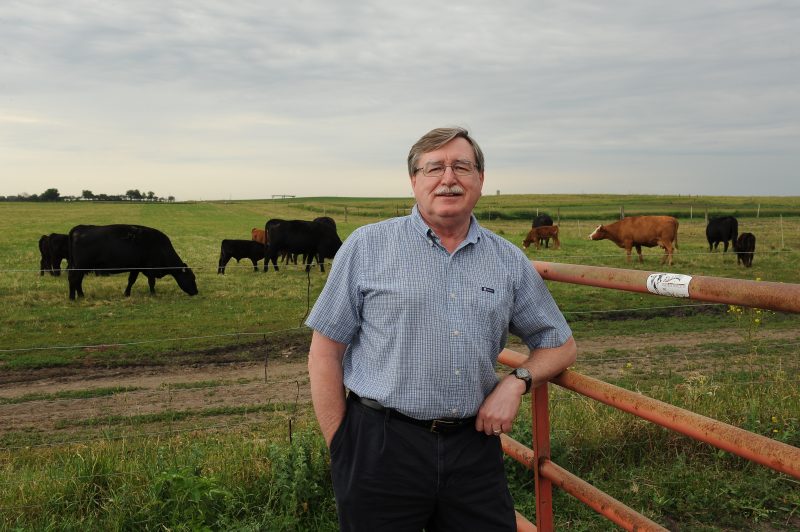 Mark Rasmussen is director of the Leopold Center for Sustainable Agriculture. His current appointment followed a career as an agricultural researcher with USDA and U.S. FDA. Rasmussen is a tenured professor in the Iowa State Department of Animal Science. He earned a bachelor’s degree in agriculture (1976) and a master’s degree in animal science (1979) from the University of Nebraska‐Lincoln. He farmed on a diversified beef, grain and forage operation in Nebraska before leaving to pursue research and academic interests. He earned a Ph.D. in dairy/animal science (1986) from the University of Illinois at Urbana‐Champaign. While working for USDA at the National Animal Disease Center, he received an MBA (1996) from Iowa State. He has also held research positions in private industry. Rasmussen’s professional and scientific expertise extends to various areas of sustainable crop and livestock agriculture, microbiology, and food safety.
Mark Rasmussen is director of the Leopold Center for Sustainable Agriculture. His current appointment followed a career as an agricultural researcher with USDA and U.S. FDA. Rasmussen is a tenured professor in the Iowa State Department of Animal Science. He earned a bachelor’s degree in agriculture (1976) and a master’s degree in animal science (1979) from the University of Nebraska‐Lincoln. He farmed on a diversified beef, grain and forage operation in Nebraska before leaving to pursue research and academic interests. He earned a Ph.D. in dairy/animal science (1986) from the University of Illinois at Urbana‐Champaign. While working for USDA at the National Animal Disease Center, he received an MBA (1996) from Iowa State. He has also held research positions in private industry. Rasmussen’s professional and scientific expertise extends to various areas of sustainable crop and livestock agriculture, microbiology, and food safety. -
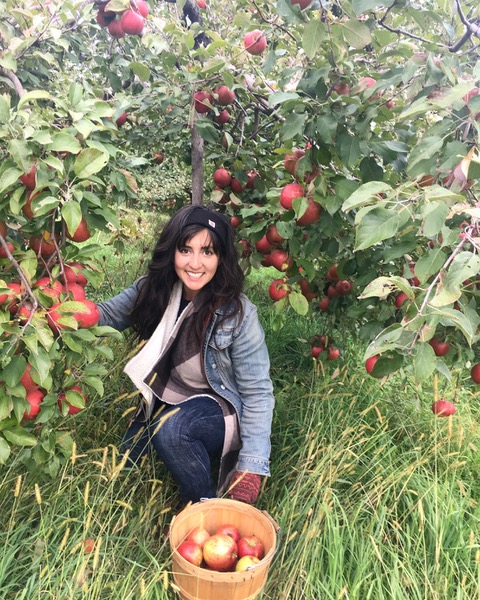 Lindsay Rebhan is co-owner of Ecological Design, a woman owned Land planning and Design Company. A specialist in agroecology, land use, farm design and land management, Lindsay works with farmers, land owners, food nonprofits and organizations to increase the natural wealth of land over time. She is passionate about seeing land alive with life, employment, learning and nourishment. Lindsay is also a speaker and teacher on ecosystem regeneration, she co-teaches an annual Permaculture Design Course at Mastodon Valley Farm, a college course on Environmental Sustainability with HECUA at Lily Springs Farm and is on the Advisory Council of Savanna Institute.
Lindsay Rebhan is co-owner of Ecological Design, a woman owned Land planning and Design Company. A specialist in agroecology, land use, farm design and land management, Lindsay works with farmers, land owners, food nonprofits and organizations to increase the natural wealth of land over time. She is passionate about seeing land alive with life, employment, learning and nourishment. Lindsay is also a speaker and teacher on ecosystem regeneration, she co-teaches an annual Permaculture Design Course at Mastodon Valley Farm, a college course on Environmental Sustainability with HECUA at Lily Springs Farm and is on the Advisory Council of Savanna Institute. -
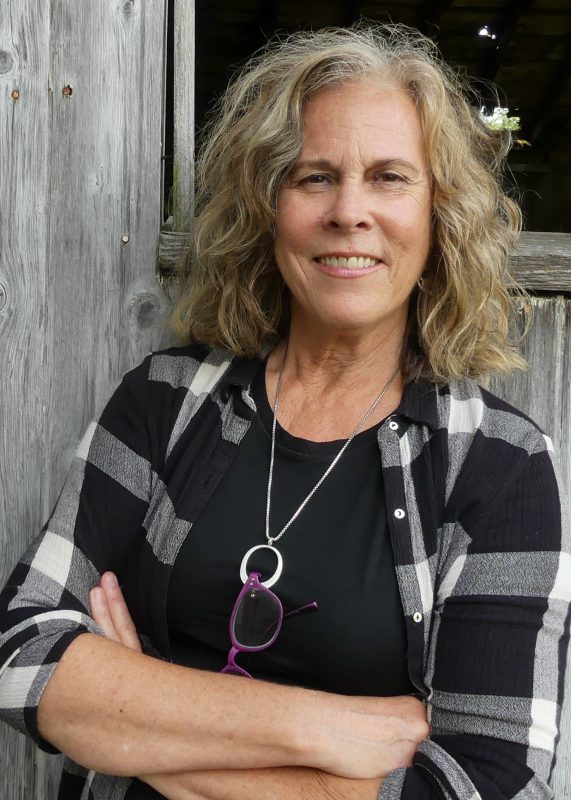 Julie Ristau is Executive Director at Main Street Project in Northfield MN— a training and demonstration hub showcasing innovations in regenerative agriculture. We focus on resilient approaches that provide economic opportunity for new farmers—including immigrants—while reducing ecological damage, producing affordable nutritious food, and mitigating climate change.
Julie Ristau is Executive Director at Main Street Project in Northfield MN— a training and demonstration hub showcasing innovations in regenerative agriculture. We focus on resilient approaches that provide economic opportunity for new farmers—including immigrants—while reducing ecological damage, producing affordable nutritious food, and mitigating climate change. As a Principle of Regeneration Partnership LLC, Julie also works with restorative community-based farms throughout the country. She has held an endowed chair in Agricultural Systems at the University of Minnesota’s Institute for Sustainable Agriculture, served as Executive Director of the League of Rural Voters and ran her own hog-breeding business in southern Minnesota.
Julie was also co-founder and publisher of Utne Reader magazine and co-led Homegrown Minneapolis, the city’s urban agriculture and food initiative. She served as a board member of the University’s Minnesota Institute for Sustainable Agriculture for six years and is currently serving on the board of Shared Capital Cooperative.
-
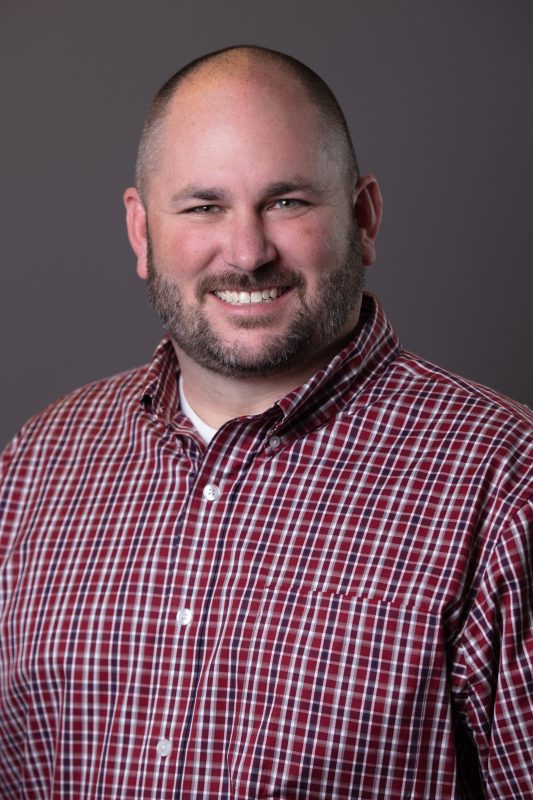 Kris Reynolds joined American Farmland Trust in 2017. Kris’s primary responsibility is managing programs that promote sound farming practices to farmers and landowners in Illinois. He is also responsible for working with the partners in the AFT led watersheds to coordinate activities with farmers and landowners that improve water quality, improve soil health, enhance nutrient efficiency, utilize conservation cropping systems and meet the goals of Illinois’ Nutrient Loss Reduction Strategy.
Kris Reynolds joined American Farmland Trust in 2017. Kris’s primary responsibility is managing programs that promote sound farming practices to farmers and landowners in Illinois. He is also responsible for working with the partners in the AFT led watersheds to coordinate activities with farmers and landowners that improve water quality, improve soil health, enhance nutrient efficiency, utilize conservation cropping systems and meet the goals of Illinois’ Nutrient Loss Reduction Strategy.Kris previously worked as a Resource Conservationist with the Montgomery County Soil and Water Conservation District for 15 years. He worked with local farmers and landowners to develop conservation plans on their land. He also spent time as a Cover Crop Specialist with the Illinois Council on Best Management Practices promoting, educating and advising on cover crop usage. He is a Certified Crop Advisor with the American Society of Agronomy. He also holds specialty certification from ASA as a 4R Nutrient Management Specialist and Sustainability specialist. Reynolds holds a B.S. in Agronomy and Ag Business from Illinois State University.
Kris lives and farms in Nokomis, IL with his wife Jodi and their four sons Kaden, Kolin, Kyle and Konnor.
-
Eric Rund is a producer of food-grade corn, seed beans, and miscanthus in East Central Illinois. Drawing from work done at the University of Illinois, three biomass study trips to Europe, and his own experience, Rund expanded miscanthus production on his own farm to 40 acres. From this he harvests, stores, and delivers miscanthus chips for boiler fuel, turkey bedding, and erosion control. In June 2017, he assisted to source and install a multifuel biomass boiler at the University of Illinois Energy Farm to heat a large greenhouse.
-
 Liz Rupel is the Policy Organizer at the Illinois Stewardship Alliance, which works on behalf of Illinois local farming community and serves as an advocate in state policymaking. Liz’s mission as an organizer is to engage with regenerative farmers to learn about their hopes, successes, and barriers, in order to find solutions that will keep family farmers as stewards of the land.
Liz Rupel is the Policy Organizer at the Illinois Stewardship Alliance, which works on behalf of Illinois local farming community and serves as an advocate in state policymaking. Liz’s mission as an organizer is to engage with regenerative farmers to learn about their hopes, successes, and barriers, in order to find solutions that will keep family farmers as stewards of the land. -
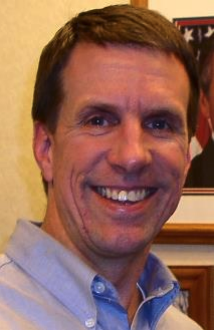 Al Singer has been the Dakota County Land Conservation Manager since 2003. Dakota County is one of the seven core Minneapolis St. Paul metro region counties with 415,000 residents and more than 230,000 acres of agricultural land. Although the County has been a leader in permanently protecting nearly 8,000 acres of agricultural land and ensuring permanent vegetative buffers along rivers and streams, their is excessive nitrate in a major drinking water supply area and ongoing flooding issues. The County is currently developing comprehensive Land Conservation and Groundwater Plans which will need to integrate agricultural practices and economics, soil health, restored hydrology and wetlands, and water quality and wildlife habitat improvements if these plans are to be successfully implemented. Continuous living cover will be a critical element of these efforts. Prior to his work at the County, he was a Program Coordinator for the Minnesota Department of Natural Resources, an Environmental Planner and Program Manager for the Minneapolis Park and Recreation Board and an Interpretive Naturalist and Program Manager at the Dodge Nature Center in West Paul.
Al Singer has been the Dakota County Land Conservation Manager since 2003. Dakota County is one of the seven core Minneapolis St. Paul metro region counties with 415,000 residents and more than 230,000 acres of agricultural land. Although the County has been a leader in permanently protecting nearly 8,000 acres of agricultural land and ensuring permanent vegetative buffers along rivers and streams, their is excessive nitrate in a major drinking water supply area and ongoing flooding issues. The County is currently developing comprehensive Land Conservation and Groundwater Plans which will need to integrate agricultural practices and economics, soil health, restored hydrology and wetlands, and water quality and wildlife habitat improvements if these plans are to be successfully implemented. Continuous living cover will be a critical element of these efforts. Prior to his work at the County, he was a Program Coordinator for the Minnesota Department of Natural Resources, an Environmental Planner and Program Manager for the Minneapolis Park and Recreation Board and an Interpretive Naturalist and Program Manager at the Dodge Nature Center in West Paul. -
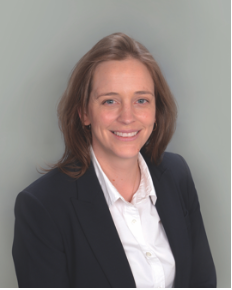 Margaret Wagner supervises the Clean Water Technical Unit at the Minnesota Department of Agriculture. In this role, she coordinates Clean Water Fund programs and manages on-farm demonstrations and research sites across Minnesota. Margaret works closely with many project partners including farmers, crops advisers, university researchers, private industry, soil and water conservation districts, and other state agencies. Margaret has a Bachelor’s degree in Environmental Science from Colorado College and a Master’s degree in Applied Plant Sciences (Agronomy) from the University of Minnesota. She has worked at the Minnesota Department of Agriculture since 2010.
Margaret Wagner supervises the Clean Water Technical Unit at the Minnesota Department of Agriculture. In this role, she coordinates Clean Water Fund programs and manages on-farm demonstrations and research sites across Minnesota. Margaret works closely with many project partners including farmers, crops advisers, university researchers, private industry, soil and water conservation districts, and other state agencies. Margaret has a Bachelor’s degree in Environmental Science from Colorado College and a Master’s degree in Applied Plant Sciences (Agronomy) from the University of Minnesota. She has worked at the Minnesota Department of Agriculture since 2010. -
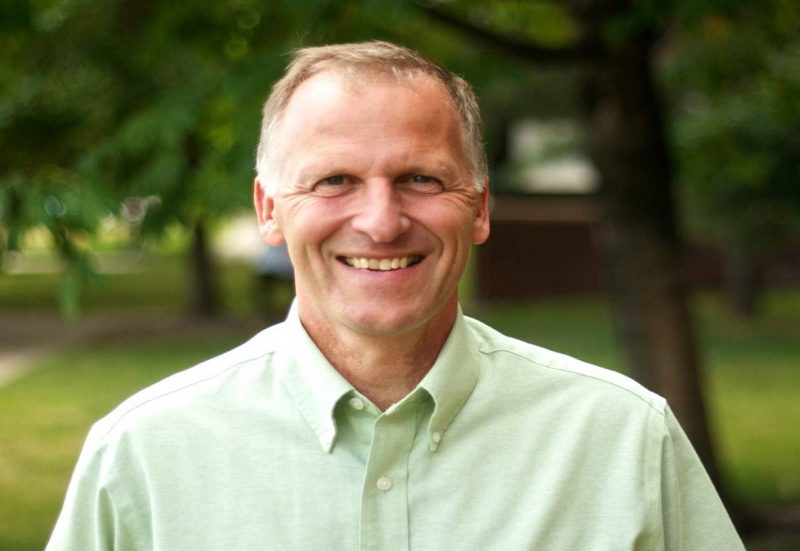 David Wall works as an Environmental Research Scientist in the Watershed Division of the MPCA. He leads Minnesota’s multi-agency Nutrient Reduction Strategy efforts to reduce nutrients in waters within Minnesota and those waters leaving the state. Dave represents Minnesota while serving on the Gulf of Mexico Hypoxia Task Force Coordinating Committee.
David Wall works as an Environmental Research Scientist in the Watershed Division of the MPCA. He leads Minnesota’s multi-agency Nutrient Reduction Strategy efforts to reduce nutrients in waters within Minnesota and those waters leaving the state. Dave represents Minnesota while serving on the Gulf of Mexico Hypoxia Task Force Coordinating Committee. With degrees in Geology and Soil Science from the University of Wisconsin and University of Minnesota, Dave has worked as a hydrologist and research scientist at the MPCA since 1987, focusing mostly on rural nonpoint pollution issues. Dave’s leadership in a 2013 study of Nitrogen in Minnesota Waters helped bring continuous living cover needs to the forefront of water quality discussions. Findings from that study were incorporated into the State’s 2014 Nutrient Reduction Strategy. Dave is currently evaluating the progress made to reduce nutrients in the state’s waters at the five-year mark since the Strategy was completed.
-
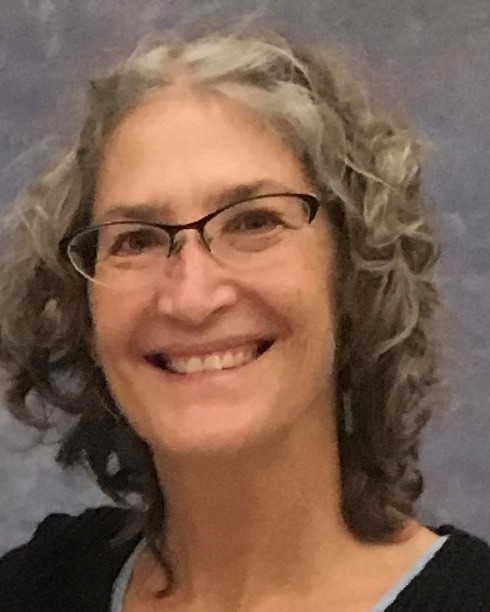 Michelle Wander is the Director of the Agroecology and Sustainable Agriculture Program in the Department of Natural Resources and Environmental Sciences at the University of Illinois where she has studied soil stewardship, organic matter management and soil quality in partnership with farmers, consumers and policy makers for over 20 years.
Michelle Wander is the Director of the Agroecology and Sustainable Agriculture Program in the Department of Natural Resources and Environmental Sciences at the University of Illinois where she has studied soil stewardship, organic matter management and soil quality in partnership with farmers, consumers and policy makers for over 20 years. -
 Dr. Carl Wepking is Project Manager for Grasslands 2.0 at the University of Wisconsin-Madison and Executive Director of the Global Soil Biodiversity Initiative (GSBI). Grassland 2.0 is a collaboration of researchers, producers, farmers, public, private and non-governmental sector leaders seeking to create pathways for farmers and producers to achieve increased profitability, security and nutrient and water management through grassland-based agriculture. The GSBI is a grassroots collaboration of soil biologists, ecologists, and scientists seeking to translate expert knowledge of soil biodiversity into environmental policy and sustainable land management for the protection and enhancement of ecosystem services. Dr. Wepking is an ecologist focused on soil ecosystems and how they are impacted by human activities. He received his B.S. in Environmental Science from St. Norbert College, and his Ph.D. in Biology from Virginia Tech.
Dr. Carl Wepking is Project Manager for Grasslands 2.0 at the University of Wisconsin-Madison and Executive Director of the Global Soil Biodiversity Initiative (GSBI). Grassland 2.0 is a collaboration of researchers, producers, farmers, public, private and non-governmental sector leaders seeking to create pathways for farmers and producers to achieve increased profitability, security and nutrient and water management through grassland-based agriculture. The GSBI is a grassroots collaboration of soil biologists, ecologists, and scientists seeking to translate expert knowledge of soil biodiversity into environmental policy and sustainable land management for the protection and enhancement of ecosystem services. Dr. Wepking is an ecologist focused on soil ecosystems and how they are impacted by human activities. He received his B.S. in Environmental Science from St. Norbert College, and his Ph.D. in Biology from Virginia Tech. -
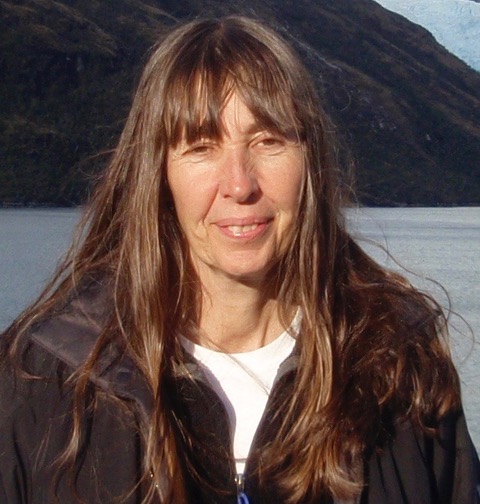 As a permaculture designer, agroecologist and author, Paula Westmoreland is a leading voice in the regenerative community. As founder and designer at Ecological Design, Paula is passionate about inspiring clients regarding what’s possible with their property, designing whole systems that connect people to the land in a way that enriches both, and providing a vision and pathways for restoring ecological health. Paula has a Masters degree in Ecology, Sustainable Agriculture and Landscape Design from the University of Minnesota, received her Permaculture Design Certificate in 2000, and started Ecological Design that year. In 2003, she co-founded the Permaculture Research Institute Cold Climate and developed the Natural Capital Plant Database for designing plant polycultures and cropping systems. Paula is co-author of This Perennial Land: Third Crops, Blue Earth and the Road to a Restorative Agriculture and is Board Vice President for Permaculture Institute of North America.
As a permaculture designer, agroecologist and author, Paula Westmoreland is a leading voice in the regenerative community. As founder and designer at Ecological Design, Paula is passionate about inspiring clients regarding what’s possible with their property, designing whole systems that connect people to the land in a way that enriches both, and providing a vision and pathways for restoring ecological health. Paula has a Masters degree in Ecology, Sustainable Agriculture and Landscape Design from the University of Minnesota, received her Permaculture Design Certificate in 2000, and started Ecological Design that year. In 2003, she co-founded the Permaculture Research Institute Cold Climate and developed the Natural Capital Plant Database for designing plant polycultures and cropping systems. Paula is co-author of This Perennial Land: Third Crops, Blue Earth and the Road to a Restorative Agriculture and is Board Vice President for Permaculture Institute of North America. -
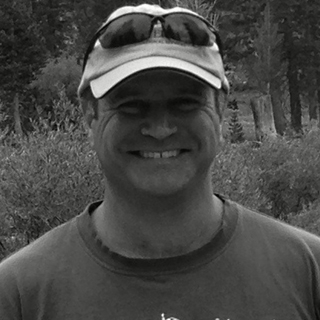 Jon Winsten’s focus has been on the adoption of appropriate technology for reducing production costs and improving environmental performance of livestock and crop agriculture. Dr. Winsten served as the Chief-of-Party for Winrock’s successful Sustainable Dairy Global Development Alliance project in Kazakhstan from 2006-2009 which trained farmers in dairy grazing techniques. He was a member of the technical team that authored the Grazing Land and Livestock Management carbon offset methodology for the American Carbon Registry. In 2014, he co-authored a set of case studies on grazing management for cow-calf operations in the Mid-south, focusing on the potential for reducing net GHG emissions and increasing productivity through increased soil health.
Jon Winsten’s focus has been on the adoption of appropriate technology for reducing production costs and improving environmental performance of livestock and crop agriculture. Dr. Winsten served as the Chief-of-Party for Winrock’s successful Sustainable Dairy Global Development Alliance project in Kazakhstan from 2006-2009 which trained farmers in dairy grazing techniques. He was a member of the technical team that authored the Grazing Land and Livestock Management carbon offset methodology for the American Carbon Registry. In 2014, he co-authored a set of case studies on grazing management for cow-calf operations in the Mid-south, focusing on the potential for reducing net GHG emissions and increasing productivity through increased soil health.Dr. Winsten has led projects to assess and pilot-test pay-for-performance conservation in several states and provinces and co-authored a widely-used guidance document. As a kid, he worked on his family’s dairy farm and showed registered Holsteins through 4-H. In college, he studied animal science and agricultural economics and was on the dairy cattle judging team. After college, he learned about grazing by working on several dairy farms in New Zealand. In 2001, Dr. Winsten earned his Ph.D. in Agricultural Economics from Penn State University and has been focused on finding win-win solutions for farming and the environment since then. He lives in northern Vermont with his wife and three children and is an avid skier and fisherman.
-
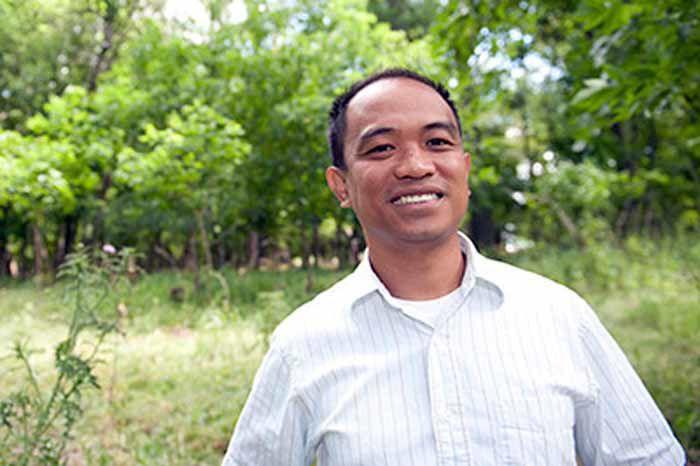 Diomy Zamora is an Extension Professor/Extension Educator University of Minnesota Extension and the Leader of the UMN Extension Agroforestry and Bioenergy program. He is the Principal Investigator of the LCCMR-funded project “Restoring and Promoting Oak Savanna using Silvopasture”.
Diomy Zamora is an Extension Professor/Extension Educator University of Minnesota Extension and the Leader of the UMN Extension Agroforestry and Bioenergy program. He is the Principal Investigator of the LCCMR-funded project “Restoring and Promoting Oak Savanna using Silvopasture”.